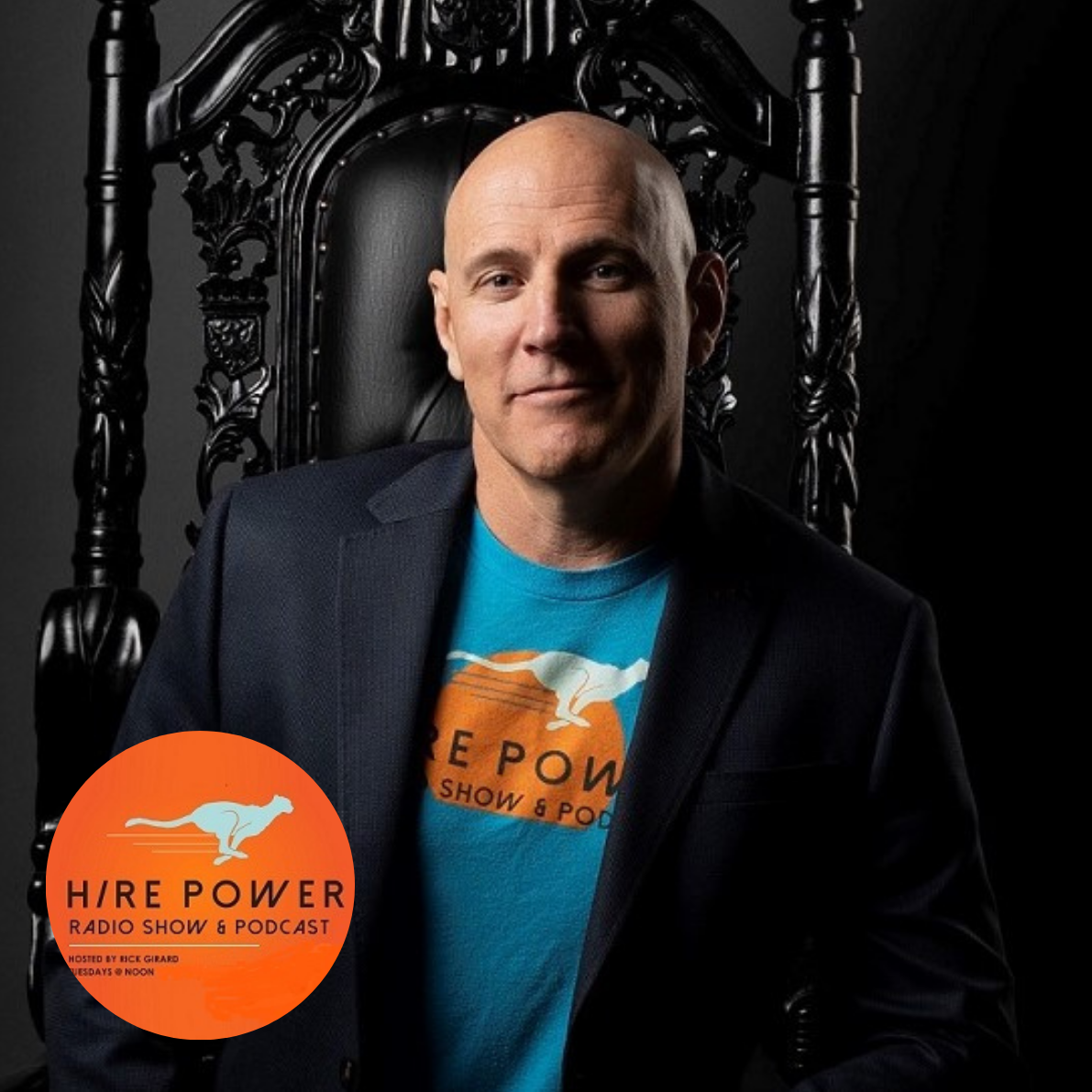
Welcome to the Hire Power Radio Show, where entrepreneurs and business leaders learn to hire with confidence and precision. Hosted by Rick Girard, this show is your go-to resource for avoiding costly hiring mistakes and securing the right talent to drive your company’s success. We dive deep into hiring challenges each week, featuring candid conversations with top-performing rebel entrepreneurs, disruptors, and industry experts. Join us every Tuesday at noon (PT) on LinkedIn Live for actionable insights, proven strategies, and the latest trends to give you the hiring edge. Subscribe now and join the movement to transform your hiring game. Do you have thoughts or questions? We’d love to hear from you!
Episodes
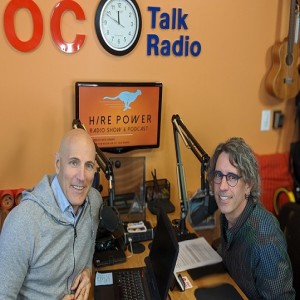
Thursday Nov 14, 2019
How to Really Evaluate & Hire Technical Talent with Aaron Cooley of Kunai
Thursday Nov 14, 2019
Thursday Nov 14, 2019
We’ve all done it, hired the person who looked great on paper because they seemed to possess the skills we needed. Only to have the hire turn out to be a major disaster.
Here is the truth: Technical resources have a high failure rate because of how they are interviewed. I am going to argue that Assumptions and expectations alignment is where we fail.
Today is about how to evaluate and hire strong technical talent by uncovering the Truth.
Today’s Quote:
"Talent without discipline is like an octopus on roller skates. There's plenty of movement, but you never know if it's going to be forward, backward, or sideways." - H. Jackson Brown, Jr.
I’m Rick Girard and welcome to the Hire Power Radio Show. Our mission is to help Entrepreneurs and hiring managers to avoid costly hiring mistakes by identifying a specific problem and provide proven solutions to enable you to WIN the right hire. We share insights from top-performing rebel entrepreneurs, disruptors & industry experts.
Like our guest today: Aaron Cooley, Lead Consultant - Security & Mobility for Kunai.
Aaron Cooley is senior technical consultant at Kunai. His specialties include high security backend applications, mobile applications, and applications that leverage video. Over his nearly 30 year career in Silicon Valley he’s worked at companies both large and small, to build teams and deliver everything from the first Java enabled handset, to Yahoo’s video player, to secure data processing for the world’s largest accounting firms. Aaron has hired hundreds of engineers throughout his career which makes Aaron a perfect expert for today’s topic.
Aaron, Welcome to the Hire Power Radio Show today!
Today we are going to cover
- How to identify & evaluate strong technical talent
- How to interview and Hire the person you company needs
Why do we fail in hiring technical talent?
- Arbitrary requirements… pass the technical coding test but failed miserably when they were hired.
- %of false positives
- & false negatives
What to be looking for?
- Desire is way more important than initial skillset!
- Really want the job, you have to jump on that
- In 3 weeks they will know what they need to know for the job
What to Avoid
- Do you know what I know? You want people who know things that you don’t know.
- Don’t do coding quizzes … it is about you, not the other person
- Don’t hire an ‘Architect’ that doesn’t write code every day. A good technical lead is 100% hands on every time, but many ‘Architects’ are actually technical product owners. They only understand technology from the perspective of a customer. They are great at making diagrams, and requirements, not great at leading technical teams to implement solutions.
Rick’s Input:
-
- Resume Bias
- Assumptions!
- Look for transferable skills, not skill lists
- Years of experience doesn't really matter
- Impact- What have they REALLY accomplished?
- Resume Bias
How do we fix it?
- Start with the resume
- What did they do
- Progression
- Are the things they have done relevant to you
- Looking for the pattern of starting & delivering
- Interview
- Skip the coding quizzes
- Make the interview about them
- What exactly did YOU do?
- Day to day work… detail it out! Dig deep
- Individual contributor vs. lead engineer
- IC focus on tasks that someone else defined. Great at delivering but not the best person to drive things. Documentation not important to this person.
- Lead Engineer: will see the need for documentation and they’ll encourage others to do the same. Comments on the code, write the new code and will see opportunities to write new code through documentation.
- All engineering like writing new code!
Two sides to the interview
- You selling to the person
- Ego in the room
- Finding out if the person is a match
- Leave your ego out of the room
- Find out what the person has really done
- If your interview process it that broken, I don't want to work for your company
Rick’s Nuggets
- Resume
- Work history
- What was accomplished. Evidence of impact
- What did you do?
- How did you do it?
- What were the results?
- Interview
- Utilize the phone screen!
Key Takeaways:
- Skip coding quizzes
- Architects and technical leadership NEED to write code!
- Make the interview about the person and dig deep with questions based on experience. What someone has done before is the best predictor of the future
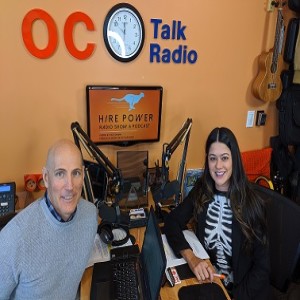
Thursday Oct 31, 2019
Thursday Oct 31, 2019
In honor of Halloween, we are sharing interview horror stories. We all have heard campfire stories of a crazy interview or even a scary hire. Today we are going to help you identify crazy on both sides of the coin to help you avoid a tragic nightmare.
How not to get hired or have someone accept your job offer
Today’s Quote:
"If God treats you well by teaching you a disastrous lesson, you never forget it." - Ray Bradbury
Our guest today: LeiLani Quiray, Founder & CEO of bethechangeHR
LeiLani has a fiery passion for both Human Resources and philanthropy. She believes people are a company’s most valuable asset and they should be cared for as such but no only on a level where the business truly cares but a quantifiable basis where we measure the effectiveness of the programs we put in place to foster a healthy work environment.
be the change HR, Inc., a conscious company and social enterprise, provides fractional HR executive support, strategy and service to businesses in any facet of HR from pre-hire to post-term and everything else that happens in between.
"Be the change you wish to see in the world." - M. Ghandi
Yup...she's doing just that!
- Scary Things people do in interviews
- What scares People from your company
- Avoiding your own horror stories
Warning signs of an upcoming bad interview
- Showing up late, without a phone call
- Typos in the resume- the devil is in the details
- customer experience
- fast paste environment
- Heavy Perfume
Two Stories
- Schwane Schwiley
- Rejection Letter & his response (I have one of the emails!)
- “My Truck was Stolen (and hit by a train) - A case of a negligent hire
Rick’s Input:
Company Fails
- Lack of clarity & setting performance metrics
- Constant re-scheduling
- Unstructured interview process
- Arrogant interview process
- Setting the environment to maximize a person’s performance in the interview
- Group whiteboard test designed to make you crack
- Adversarial
- Erase work while answering questions
Two Story Conclusion
- Schwane Schwiley
- Swifter involvement to protect employees (myself)
- Crazy is out there and you can’t control it
- “My Truck was Stolen (and hit by a train) - A case of a negligent hire
- Background checks are key
- Overlooking criminal history = negligent hiring
What do we need to pay attention to?
- The frame of mind (desperation, urgency)
- Over aggressiveness
Rick’s Nuggets
- Diligence in the phone screen
- Uncover the truth & the crazy
- Focus on the person, not the skills
- Skills-based hires breed horror stories
- Pain, Desire & Impact
- 3 behavioral-based questions designed to get under the hood
- Beware: taking credit, playing well with others & the blame game
Key Takeaways:
- Watch out for warning signs in the very beginning
- Sometimes sh!t just happens but you MUST take action quickly
- Background checks are important!
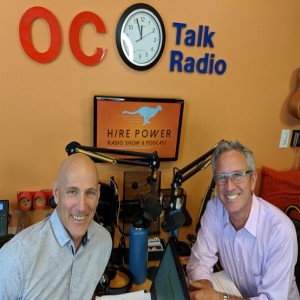
Thursday Oct 24, 2019
Thursday Oct 24, 2019
The purpose of the interview is to get the truth of who a person is and how they can bring value to the business. Common or conventional tactics do very little to do more than scratch the surface of the individual and so we still make hiring decisions based on likability and bias. Which is why we make bad hires!
The questions that you ask, are the questions that hurt you. Because they are unimpressive and do very little to showcase your organization as outstanding.
This show is proudly sponsored by Vidoori
Today’s Quote:
“Experienced managers interview to qualify. Inexperienced managers interview to disqualify” - Mark W Boyer
Guest Bio:
Robert Davis is the CEO of Communities for Cause. He is a seasoned CEO and entrepreneur who enjoys the challenges involved in trying to run and scale companies. Building the structure and creating the company culture required to commercialize a company's passion and grow business by turning great ideas into concrete, actionable steps that yield revenue, repeat customers, and increased cash flow.
I’ve always been a transparent person who doesn't shy away from conflict. I find great satisfaction in working with teams to identify what may be missing and addressing those challenges head-on to effect positive change and rapid evolution.
Show Highlights:
- Preparing for the interview
- Conducting the interview
Why is it important?
- Interviews are riddled with assumptions - king of all F-ups!
- Creating a judgment by the assumption
- Bias
Interview preparation
Create questions on the front end and determine “why” you are asking that question
- Filter down to the questions the most applicable
- Taylor the questions specific to the position
- Wants don’t count in the interview process
Qualifications
- Personality- can be a qualification
- Make sure there is a fit
- Skills/experience
- View of where you want someone to go from and to.
- Growth, mutual path and where the person will fit
- Remove likability from the ultimate decision
Preparation
- What does the business need?
- Align with company values
- Prepare questions designed to understand WHO the person is
- Amazon Behavioral method
- Do not use the resume as your guide!
- Prepare the interviewee on what to expect in the conversation!
Conducting the Interview
- Don’t treat interview casually
- (no cup of coffee at Starbucks), or meet for dinner alone.
- The Start and the stop need to be formal
- Perpetuate bad interview practices unknowingly
- Group meals are fine
- Personal questions- don’t ask (anything about personal lives) If they share, fine
Rick's Nuggets
Interview
- Be organized!
- Put into practice a formal structure, stick to the time, provide feedback
- Structure
- 3-5 people for onsite, 45 minutes per person
- Predetermined questions 3-4 max
- Challenging & Take out of comfort zone
- Eliminate questions that elicit canned response
- Behavioral questions are the most revealing… follow up with why, why, why?
- Amazon does it!
- Sample Behavioral question
*Do you consider yourself to be Lucky? (Positive or Negative outlook on life)
- Explain
- Or Why?
Key Takeaways:
- Be clear and concise with yourself on the information you need to extract
- Don't make it very personal from your perspective

Thursday Oct 10, 2019
The Challenges & Benefits of Hiring Refugees with Chris Chancey of Amplio Recruiting
Thursday Oct 10, 2019
Thursday Oct 10, 2019
We are in a negative unemployment market and there are just not enough workers on the open job market. The solution might be taking a different avenue... Hiring Refugees.
There is great value to expanding beyond your scope of the limited talent pool into unfamiliar waters. Consider people who are motivated, engaged and reliable to elevate company performance.
This show is proudly sponsored by Vidoori
Today’s Quote:
"We must find a way to balance our tradition as a state welcoming of refugees while ensuring the safety and security of our citizens." Bruce Rauner - Former Governor of Illinois
Guest Bio:
Amplio Recruiting is a staffing agency placing refugees into jobs across the US. Chris Chancey launched Amplio in 2014 after moving into a refugee community outside of Atlanta, GA and now leads a team that has placed over 5000 refugees from 40 different countries into full-time employment at over 300 US companies.
As a social entrepreneur, venture capitalist and author of Refugee Workforce, a book articulating the economic impact of refugees in America, Chris believes in leveraging business to create greater stability for the 70M displaced people around the globe.
Show Highlights:
- Why refugees make great hires
- Dispel some of the beliefs
- Provide a How-to guide to locate and hire
Why is this a good pool of talent?
- Legal to work
- High retention (80% @ 3 months & 70% after 1 year)
- Drug-free- zero
- Increase of productivity - high growth mindset
- Company's reporting back double quota
- Mostly Congo, Burma, middle east
What does a company need to know about hiring refugees?
- Language barrier
- They learn English faster when they have a job
- Software to help train
- Transportation
- Rely on public trans
- Mostly blue-collar
- Only 10-20% have advanced skills
- Cultural Awareness
- Diversity welcome
How does a company tap into the Refugee pool?
- First, open the culture to diversity thinking
- Are safety and other relevant signs posted in the native languages of employees to assure a full understanding of a safe environment?
- Do you have an intra-company multicultural calendar to avoid scheduling important events or meetings on major cultural holidays?
- In the onboarding process, are materials offered in both English and the employee’s native language?
- Are meet-and-greets, building tours, team lunches, and other activities in place to ease the new employee into a comfortable atmosphere?
- Are training materials or presentations reviewed before introducing them to employees of different cultures to see if anything needs to be modified or explained in a different way?
- Top-down approach
- Promote inclusivity: the focus is not diversity, the focus is inclusivity
- Specific examples:
- Systems in place to accommodate onboarding:
- Slow onboarding time: What you would typically cover in two days, with a traditional employee, spread it out over a week or so. It’s better to over-communicate on the front-end than have to make amends for lost time, resources and relationships on the back-end.
- Don’t leave anything to chance: Communicate, communicate, communicate. Be direct with instruction and don’t assume the other person immediately understands. Overstate tasks and ask questions to assess comprehension. Avoid demeaning tones and be patient with questions, and don’t assume employees understand even the most basic cultural norms.
- Second, search “refugee organizations near me” on google to connect with local non-profit refugee agencies. They will be willing to educate you on the community and can invite you to local community events. If you share a job description with them, they can help refer to potential candidates.
Key Takeaways:
- Recognize the value of refugee community (buy the book)
- Connect with your local refugee community
- Consider ways you can employ refugees at your company
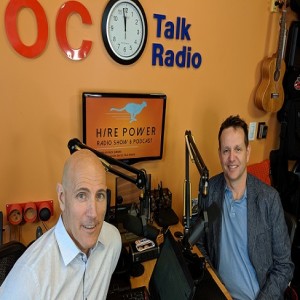
Wednesday Jul 31, 2019
Ryan Malone: Building a High Scale, High Performing Remote Company!
Wednesday Jul 31, 2019
Wednesday Jul 31, 2019
Today we are talking about building a high scale remote company. Try this on for size, a 75-person company without an office! The advantages are different than you might think yet you really must be mindful of who you are hiring.
A remote workforce is a time to talent advantage not a save money advantage
Today’s Quote:
“Most of us spend too much time on what is urgent and not enough time on what is important.” — Stephen Covey
Guest Bio:
Ryan Malone is the CEO of SmartBug Media, which he founded to give clients amazing results and employees a lifetime of memories. Before SmartBug, Ryan ran marketing at several venture-backed and public companies. Ryan enjoys the gym, live music, people watching, and playing terrible guitar. He lives in Orange County with his wife and two amazing daughters.
Show Highlights:
- Challenges & benefits of a remote organization
- The importance of cultural fit
- Interview structure for hiring remote employees
Challenges:
Why??
Building a business is hard enough. Why make it more difficult by building a remote business?
- Be part of the team and be part of the family
- Hire better and faster by being able to hire talent from around the country
- Only option to build the tribe
Talent Strategy:
- Recruit ahead- create a waiting list. Always interviewing.
Building a Marketing culture:
- People are bought in when they join
- Structure work culture
- Deep challenging relationships
- First people hired should be a marketing/pr person. Attract people who are already qualified to the process.
- Peer-based reference reviews prior to the interview. Inbound recruiting, skill survey
- Video submissions
Benefits of building a remote workforce:
- The talent pool is vast
- Work/ life integration-
- Flexibility
- The world will not end if you are not at your desk
Interview process:
- Inbound resume flow (into ATS)
- No headhunting
- ATS- kicks out instructions to make a video to submit
- Schedule an interview
- All video interviews, mix of behavioral interviewing
- One person focuses on skills, values, tools, cultural
- Look for Clean work environment, evidence of value, perseverance, curiosity
- Are you an additive to the culture?
Interview structure:
- A 30-minute call with everyone on the team
- Flexible work model
- Psychological permission be available for your customers/ team but the schedule
Key Takeaways:
- Hire marketing & pr first
- Use video as a screening tool
- Reference peer review early in the process
- Designate people to be experts in the interview process
- Always be interviewing
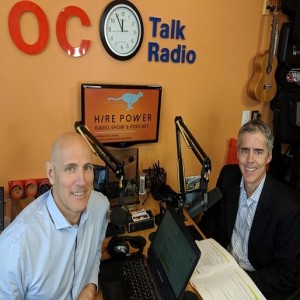
Thursday Jul 25, 2019
Martin Herrington: I'm Down With H1B... Yea, You Know Me!
Thursday Jul 25, 2019
Thursday Jul 25, 2019
Going old school with the title, don't judge!
STEM (science, technology, engineering & mathematics) hiring today is brutal as there are just not enough people to support the demand. Without bringing policy into the conversation we are going to tackle the challenge of how to hire around the limitations.
Today’s Quote:
"To maintain their own competitiveness, workers need to attain and stay current on the qualifications needed to advance in a constantly evolving economy." - Elaine Chao - Secretary of Transportation
Guest Bio:
An avid entrepreneur from University onward, Martin Herrington established a service industry business before graduation, partnered a real estate development company, and co-founded The Herrington Teddy Bear Company to move to the United States, creating a multinational sensation. As Chief Financial Officer and Managing General Partner, Martin was responsible for all aspects of the business including Sales, Production, HR, IT, and operations of the corporation before seeking additional challenges. Mr. Herrington holds a very distinguished record of service in non-profit organizations in Canada and the U.S. with his most recent focus growing the Youth Motivation Task Force of Orange County. An entrepreneurial graduate of the prestigious Haskayne School of Business at the University of Calgary with a Bachelor of Commerce, Martin also advanced his education credentials into the Series 7 and Series 66 US Securities Licenses and held the Wealth Advisory Associate role with Morgan Stanley before becoming a Financial Advisor as part of his creation strategies.
Martin is currently a founding partner and Vice-President with TEKCORUS Consulting, a Recruiting & RPO Agency based in Orange County, California specializing in recruiting high tech talent Recruitment Process Outsourcing Services. Martin has been a Toastmasters International member for many years, and speaks regularly at community events, business meetings, and consistently competes in Toastmasters International speaking contests.
Show Highlights:
- What an H1 is
- The benefits & challenges to hiring
- How to effectively hire someone under H1 status
Problem:
What is an H1?
- Long Term but not permanent work authorization / visa that is sponsored by employer.
Benefits of Hiring an H1
- Already has an h1b-
- wider pool of talent
- 3rd party intervention
- Better technical skills/expertise
- Better rate
Things to be Aware?
- Beware of agents
- Lying
- Different people showing up for different parts of the interview
- H1B is looking for a path to Green Card only
Quirks of Engineers - Knowing the individual to prepare for the interview
- Biggest challenge
- -Technically sound
- -asking basic questions
- -build a database of technical questions
How to sniff out the quirks, personality & culture fit
- Problem lies where
- Creating the right environment for an interview
- Knowing enough about your clients to be able to properly prepare candidates for interviews
Rick’s Input:
- Hire people who are already holding an H1b- Transfer
- Timing is S L O W - elimination of premium processing
Steps to Hire H1’s
First step - Go over resumes
- Watch for duplication - some resumes look too “familiar” or even identical!
- Look for excessively long resumes - ie. filled with same info. at each job experience
Second Step - initial phone call - screening for good communication skills - can be a challenge and if you cannot understand them, then your client or the team will likely not be able to either
- Go over each job experience by asking what they did and what technologies were used - making sure that it matches the resume, dates, etc.
- Listen for delays or background talking; candidate should know all details her/himself
- Confirm relocation details - do they have friends/family in New City; what is the likelihood that they will actually show up in New City? (ie. verify “Relocation Anywhere” and vet out tire kickers.
Third step - in-person or Skype interview
- Making sure the same person from phone call shows up for the in-person/Skype
- If by Skype - Watch for lip syncing, other people in the room speaking or signalling;
- Screening for communication,
Fourth step - get commitment for duration of contract;
- If necessary, contact Agency holding Visa to confirm
Rick’s two cents
- Communicate!
- No assumptions
Key Takeaways:
- Be diligent in your communications
- Find out Visa details; request copies of Visa/paperwork; allow extra time!
- Coach candidates through interview process
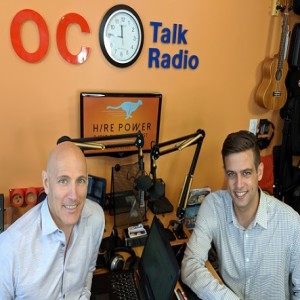
Thursday Jul 11, 2019
Ben Mones- Need to Fill VS. Cultural Alignment
Thursday Jul 11, 2019
Thursday Jul 11, 2019
The Battle between your Need to fill a role vs. hiring for cultural alignment.
More thought needs to go into “Who” you are going to hire than “What” you are going to hire. Meaning proven performers with transferable skills, not shiny objects.
Today’s Quote:
“Acquiring the right talent is the most important key to growth. Hiring was - and still is - the most important thing we do.”
- Marc Bennioff, Founder, Chairman and co-CEO of Salesforce
Guest Bio:
Ben Mones is the co-founder and CEO of Fama, an AI-based solution that identifies problematic behavior among potential hires and current employees by analyzing publicly available online information. He founded Fama in 2015 to address the needs of organizations everywhere that are grappling with the challenges of protecting their workplace culture and preventing harassment.
Prior to Fama, Ben held a number of executive roles at a variety of startups in the Bay Area, including Acceleprise, an independent accelerator focused on enterprise technology, where he served as Entreprenuer in Residence as well as Lanetix, a leading provider of cloud-based customer relationship management platforms as director, revenue operations. He also spent two years at content analytics and insights company Chartbeat. Ben has been tapped as a guest lecturer at MIT Sloan School of Management, UCLA Anderson School of Management and USC Marshall School of Business, and has also been featured in CNBC, Fast Company, Los Angeles Times, TechCrunch and the Wall Street Journal. He holds a Bachelor of Arts from Vanderbilt University and is based in Venice, California.
Show Highlights:
- Why & How culture shapes your business
- Ego over common sense- Hiring rock stars
- Lessons learned and a structure to follow
Problem:
Why is it important to invest in culture?
- Shaping the culture of your business.
- Human behavior drives business outcomes.
- The virtue of power, ability to destroy or drive excellence
- When you need a function desperately filled, how do you balance your need to fill with the cultural value
- People want to align with products and services that they are passionate about
Why does Ego make decisions over common sense?
Anybody with a legitimate amount of responsibility makes a difference.
Rockstar engineers, leaders, need to fit into the organization, not the other way around
*** first-time founders Story:
- They decided to bring in some rockstars. Someone to groom.
- Didn't really fit the culture, demographics, hustle & grit. They went for the big dog name!
- Knew almost immediately and he took a position of superiority
- Hostile, no empathy… what they thought was not the reality
Lesson Learned
- Hired but got rid of that person quickly.
Rick’s Input:
- Cultural alignment/values alignment increase productivity
- One wrong egg
- Hire Performers, not “Rockstars”
- Rockstars
Solutions:
What road map should leaders follow?
- Get to know yourselves first. What is important to your business to ensure your success, mission & values to drive success. Team-based decision
- Structured interview process. Strong candidate experience, all voices/perspectives are heard in the decision process… treat each person like a new hire from the very moment they get in contact with you
- If you think you have talked to enough people, talk to a few more.
- Confirmation bias
- Be swift. Hire slow, intervene quickly! A closer look on the first 60 days. Course correct early on! With more transparency
- Driving synergy is more important than putting a rockstar in a seat
Rick’s Framework
- Treat each Person as if they are your only person
- mindset eliminates bias
Key Takeaways:
- Human behavior drives business outcomes
- Before identifying the talent that can help drive your business forward, critical to dig-in and understand the values and culture drivers within your business.
- Intervening and course correcting is an easier option than you might think...terminating a person is a last resort.

Thursday Jun 06, 2019
Anderee Berengian: Hiring Good People is Hard....Not if You Hire for Culture First
Thursday Jun 06, 2019
Thursday Jun 06, 2019
Here’s a shocker for you guys today… Hiring Good People is Hard! Or is it? Maybe we just make it hard on ourselves because we make compromises based on need.
Today we are going to take you on the hiring journey of one startup who have managed to beat the odds to build amazing teams.
Today’s Quote:
“The pessimist sees difficulty in every opportunity. The optimist sees the opportunity in every difficulty.” - Winston Churchill
Guest Bio:
Anderee Berengian is Co-Founder & CEO at Cie Digital Labs, an interactive development firm and Managing Partner at RezVen Partners.
With more than 20 years of experience steering corporate and product strategy, Anderee is an accomplished entrepreneur, technologist, and investor passionate about driving progress through digital innovation. At Cie, Berengian is responsible for building a world-class execution-focused team and growing Cie’s digital transformation ideas into sustainable, profitable companies.
Show highlights:
- What really makes hiring hard
- How to make hiring easier
Problem:
“Organism rejects the thing that doesn't belong”
- So why do we hire people that are wrong for our companies?
- Used to screen - look at Skills first
- Are we truly interviewing and hiring for culture?
- *** Biggest pain point is time- Interview 10-12 to get a hire.
- Streamlining the process to save time
*The top dictates the culture
- Check for cultural & skills fit
- Make people comfortable .. Casual setting, get a much better sense of who they are and how they will fit.
- *** Bring back for social interaction
- Foster a lot of team-based interactions
- -heavy screening for culture
- Promoting people who propagate the way they think and execute
Rick’s Input
- Difference between Culture & Perks
- Culture is what happens when no one is looking- how people interact, treat others
- The icky stuff
Solutions:
What needs to happen in the interview process?
- The shift in recruiting to tell the story very clearly.
- The person can self select very quickly if they want to join.
- A structured process, lead drives the process
- The interview process for onsite
- Technical- screened, test-
- Artistic-
- Recruiting team-
- Bring in to interact with people.
- Meet with people in their department, adjacent teams,
- Offer stage-
- Had one candidate they really wanted, lost to another offer
Rick’s Input:
- A deeper level of understanding/vetting on the front end… ie: phone screen, recruiting call, introduction
- Target no more than 3-5 people to bring onsite for an interview. If #1 is a fit, hire! no need to comparison shop
Key Takeaways
- Build right so the organism rejects what doesn’t belong. Look for the cultural fit first
- Take your time hiring. Hire slow and then if you need to make staffing changes, do it quickly.
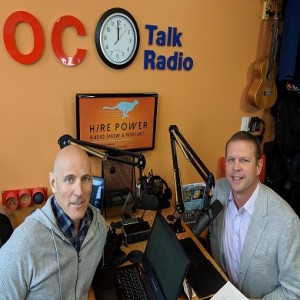
Wednesday May 01, 2019
Mitch Balzer: Comparison Shopping has No Place in Your Hiring Process!
Wednesday May 01, 2019
Wednesday May 01, 2019
Not making a decision quickly is one of the biggest mistakes a hiring manager makes. Often the fear of making the wrong hiring decision leaves people in limbo and ultimately turns them off from working at your company.…....Wanting to see a “comparison candidate” is a clear indicator of a broken interview process!
Today’s Quote:
"Passion provides purpose, but data drives decisions." - Andy Dunn - CEO of Bonobos
Guest Bio:
Mitch Balzer is the Co-Founder & Executive Vice President of Agema Technology Inc, an Orange County based Professional Services focusing on enterprise business systems like Oracle and SAP, Virtualization, and IT Security. Since starting Agema in 2012 he has overseen many of the Fortune 500 clients in the Information Technology, Government, Insurance, Finance, Utilities and Oil & Gas industries ultimately delivering a 77th ranking on the Inc. 500. Prior to Agema, Mitch started his career with a national, publicly-traded technical services firm rising quickly through the ranks. In 2002 he helped start another staffing company driving revenue and delivering a top 100 Inc. 500 ranking before departing to cofound Agema. Mitch Balzer and Agema also hold a Secret Clearance.
Show Highlights:
- The Comparison Syndrome
- Why this is detrimental to your business
- How to structure your process to avoid this costly mistake
Problem:
Why is this important? FEAR
- Fear of a bad hire for a mid-level manager.
- Want to see another resume, comparison candidate
- **Making a decision on the hire - biggest mistake a hiring manager makes!
- Setting expectations- pre-commitment, you trial close a candidate (at least you should be) when you have them interview by asking will you take this job if offered? You need to do the same with the hiring managers, if a great candidate that fits X, Y, and Z comes in tomorrow can you offer them the job right away?
- Ham & Egg - one good resume with one the recruiter knows isn’t a great fit
- Resources
Why this is Bad for your business?
- Ramifications of waiting – time kills all hires
- Outcome - sent lesser people
- Prioritization of the roles – your openings will be a much lower priority whether its an external or internal recruiter
Rick’s Input
- Stalling the process kills Momentum, Interest & Engagement
- Result of poor planning
- Defining “WHO” is needed
- The reason you are unsure is due to the poor interview techniques/process
- Gathering the right EVIDENCE in the interview
Solutions:
How to Structure for a decision
- Who has the ultimate authority to make the decision?
- Disconnect in communication and should be involved in the process
- Clearly defined process. Get commitment to timelines on resume review, interview scheduling/process, and feedback and final decisions on a candidate.
- Feedback channel (ghosting)
- Pulling the trigger! Close, Close, Close
Everyone wants to go to heaven but nobody wants to die -Tom Delaney… you all want the best candidate but you can’t be afraid of making a decision.
- If you are not sure… try contract to hire or hourly w2 consultants
- Don’t treat people like everyone else. Keep it tailored to the individual
- As a recruiter or service provider ask your clients what turns you off and then make sure you don’t’ do that?
- Also, make sure you know how you can provide the most value to them.
Rick’s Input
- Mindset:
- Approach each person with Intention to Hire
- Only Choice
- Easier to say Yes than No
- Plan & Know what you need
- Structure the interview to surface:
- Cultural / Values alignment
- Evidence of transferable accomplishments/impact
- Skills
- Behavioral interview structure to make a data-driven decision
- Communicate: pace, timing & what happens next
- Unsure?... follow up call to address the issue (next day)
Key Takeaways
- The harsh reality is that all sales/hiring processes have a cadence. If you have properly qualified your target, and then stay within that cadence, there is a reasonable chance you’ll get to “yes.” But if not, you are almost certainly going to, eventually, get to “no.”
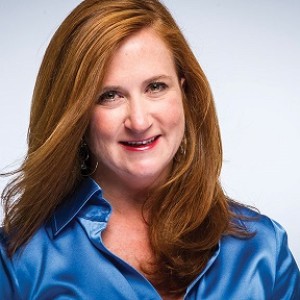
Thursday Mar 07, 2019
Tevis Trower: Re-Humanizing the Interview Process By Shifting Our Language
Thursday Mar 07, 2019
Thursday Mar 07, 2019
We don't hire for human competency but for skill set. Our language is inhuman in spite of the very real experience of working with HUMANS. People want Connection and Authentic Interaction. We need to understand What makes you, you?
Today’s Quote:
“Learn everything humanly possible about everyone you do business with." -Harvey Mackay (Swim with the Sharks)
Show Guest:
CEO of Balance Integration Corporation | Advocate for Corporate Culture & Employee Engagement
Tevis Trower is a pioneer in optimizing corporate cultures. Heralded in bestselling Megatrends 2010 as “corporate mindfulness guru for the new millennium”, Tevis has assisted powerful organizations ranging from Disney to Morgan Stanley in optimizing their most precious assets: human beings. She has created and facilitated global executive immersions for prestigious organizations including Harvard Business Review Events, Young Presidents Organization, PWC, Bloomberg LP, Viacom, Google and The Economist on issues including mindfulness, executive lifestyle, personal mastery, innovation, and the role of consciousness in creating radical success.
You can find profiles and expert advice from Tevis featured in respected media outlets including Forbes, Fortune, BusinessWeek, Glamour, YogaJournal, CIO, Pink, RealSimple, Crain’s, New York Post, Financial Times, WWD, New York Observer, MSNBC, FoxBusiness, NY1 and Martha Stewart. As NYU Faculty teaching Business Creativity & Personal Mastery, Tevis has also served as worklife expert to WebMD and Huffington Post. Tevis lives what she teaches spending time in NYC, Montauk and Woodstock, enjoying surfing, snowboarding and entertaining friends at home with her dachshund, Ruby.
Episode highlights:
- Why it is important to re-humanize your hiring process
- Changing the mindset by shifting the language
- The formula for a successful shift
Problem:
Why is this important?
- Because we focus upon skill development to get into the roles we aspire to, we buy into the notion that work and life are separate. But the reality is that we are only one person, one being.
- Through this buy-in to self-abnegation, we leave ourselves out of the workplace and all but guarantee to burn out and disillusionment. When we approach interviewing that way, we’re bound to forget that the person across from us is first and foremost a human being.
- Impostor syndrome of the interviewers (hiring managers!)
- IS-is there a place for me here? Everyone feels a little like a fake/fraud.
- Myth: This person is only as good as their resume.
- Truth: Most of the best people, have the worst resumes
Mindset
- Creating a corporate culture happens one conversation at a time. Talking about what you are passionate about, what matters to you.
- Work is home
- It is a demand market.
- * we forget we are hiring a human being… not filling a seat.
- Bring an entire life into the company
Rick’s Thoughts
- Stay away from “stinkin thinkin” - Transactional thought
- Judging people based on a piece of paper
- Restructuring the recruiting department to touch those who apply
Solutions:
By shifting the language we begin to shift the mindset.
Changing the language - humanize
- What does it mean to be human at your company?
- Don’t talk headcount, filling a seat
- life count, heart count.
- Talk about finding the “right new colleague”
- Not filling a seat or role, rounding out our community
- Shift to human terms
The breadth and depth of this person.
- Talk about the eulogy and not the resume
- Think of everyone in terms of a peer
- Values -
- The framework is in the questions, not the answers
If the adage is that people leave managers, not companies, they probably refuse offers from managers as well. Foster a culture that supports the value for success. Are they Google-ly? And what happens when being googly becomes a weakness? Homogeneity can be a downfall.
Rick's Plan
Cut out words like “candidate”, Job Description, industry terms
Key Take Away:
- Tune into your own Humanity
- Humanize the language
- Slow down the interview process to give more room & space
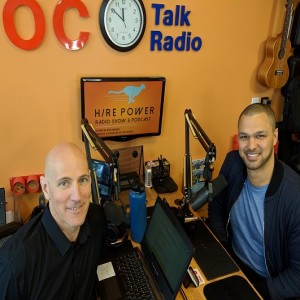
Thursday Feb 28, 2019
Thursday Feb 28, 2019
Before you hire, you need a clear understanding of what you need and Why. What is required needs to be focused on the work that needs to be accomplished. And that’s Why it helps to prioritize the level of importance.
The most crucial part of the recruiting process is understanding why this is really needed. It is often overlooked.
Today’s Quote:
"There are no secrets to success. It is the result of preparation, hard work, and learning from failure." -Colin Powell
Show Guest:
Greg Toroosian has spent the best part of a decade recruiting for technical positions across software, IT, and hardware verticals. He also has experience building non-technical teams including finance, marketing, business strategy, legal and operations. His career started in the UK as an agency recruiter working with companies in various industries and at different growth stages. He’s currently the Director of Talent Acquisition at sweetgreen where he oversees the team that manages all corporate hiring for technical and non-technical teams. sweetgreen is set to grow rapidly this year due to their focus on technology and the recent large round of investment they received.
Episode highlights:
- Defining what is needed and why
- Our Methods for defining and prioritizing your roles
Problem:
- Hiring managers don’t really know what they need
- Understand the gap, skillsets, and planning for growth
- I need another one of this person
- Job description we used last time
- Factoring in lead time to make the hire and then bring someone up to speed.
- Realistic Timelines
- Inefficient time spent on the wrong people because the hiring manager is really not
- Sitting down and outlining the work that needs to get done
- Prioritizing the work
- Setting performance benchmarks
Solutions:
Focus on the What and then the Why
- Greg’s Intake Process to define the What & Why - Request Greg's Intake Form: andrea@stridesearch.com
- Prioritization: is this really needed?
- What will the person be doing?
- How will that add value here?
- How is the work being done right now? (light bulb of urgency)
- Forward-thinking- hiring ahead of the plan
- Hire toward the body of work
Rick's Input:
- Write down the actual work that needs to be done with a timeline
- Define the expectations by setting at least 3 Performance metrics for the first 90 days
- The Problems that need to be solved help to gain emotional buy-in
- Tie the work to Growth - Impact
Key Take Aways:
- People are attracted to the problems you solve
- For hiring managers: Upfront time spent configuring the process and fleshing out then real need is crucial to a successful, smooth and efficient process. Give your recruiting partner adequate time, think through the real need and purpose of the role, and be clear on what the success criteria is.
- For recruiters: Know that this is where you can add a lot of value as a partner. Be confident in the questions you ask, be inquisitive, think about what you need to align on and focus on unearthing that information. This document and the information it contains will be what you refer back to throughout the process to make sure you’re on the right path and to push back when necessary.
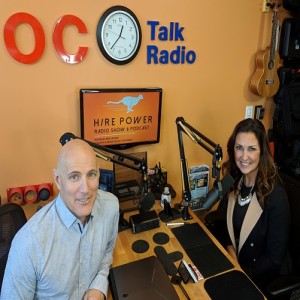
Thursday Jan 31, 2019
Shannon Johnson: Having the Right Mindset to Get Hired
Thursday Jan 31, 2019
Thursday Jan 31, 2019
A great hire happens when Career & Hiring objectives are in alignment.
Now more than ever, people want to feel whole in their careers and personal development has taken the lead in the decision-making process. Today we are going to look at hiring from the Interviewee’s perspective.
Today’s Quote:
"The things that bring you the greatest joy are in alignment with your purpose" - Jack Canfield
Show Guest:
As a Success Mentor, Shannon Johnson's passion for people has been the common denominator of her success throughout her 25 year career in corporate America. Today she is founder of her company, Stand Out and Get Hired, inc...taking one of her most successful achievements in launching best-in-class products to market, to now, launching the most exciting product of all...our future leaders.
Shannon worked for leading Fortune 500 companies in the retail, staffing, and pharmaceutical industries. Holding positions in marketing, management and sales, she has always been attracted to innovation and addicted to influencing others to think differently and get better every day.
Her mission is to inspire ambitious, driven, college students to take action in preparing to embark on their careers where they will thrive. She knows that Everything is possible when you believe in YOU FIRST & take action!
Episode highlights:
- How to hire & get hired in the right role
- The 3 pillars to “Stand Out & Get Hired”
Mindset
- Getting your game plan together to successfully get hired
- Settling for a “job”
- How do you get the interview first?
Preparation
- Not performing at 100% in an interview kills your confidence
- Interviewing burns people out, then you lose momentum
- Emphasis on the Resume- important but not
- The resume is really a screening tool for the company!
Why is this important
- Being sold on the Mission!
- Bring your value and strengths to life
- Mastering the skill of interviewing
- Prepare for what will happen
- Practice- mock interviews
- Put your “Game face” on
How does a person/company stand out to make the right decision
- Know your values
- Your Why
- Target what you Desire
- Take Action
Shannon’s plan
- Building your Brand
- Expert in You… values, vision, strength building
- Strength dashboard- strength finder assessment
- Grow your quality network
- Linkedin network, utilizing, leveraging and maximizing relationships that already exist
- Sharpen your Interview Skills
- Skills to beat your competition
- Fundamentals: approach the opportunity, preparation (dress, execution)
- Interviewing is a behavioral test. (highlight stories around 10 different behaviors)
- Practice, follow up (stand out and be memorable)
- Be relentless with follow up!
Rick’s Input
- Identify target companies (no spray and pray)
- Utilize Linkedin, Separate yourself from the pack (rise above)
- Be pleasantly persistent & ask for the Interview
Key Take Aways
- Align with your purpose
- Take action to beat your competition
- Self Awareness, Grow your Quality Network, Sharpen your Interview Skills
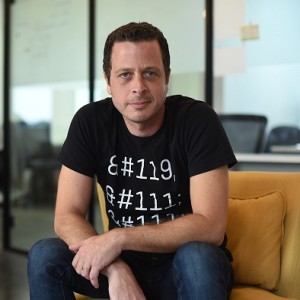
Thursday Jan 17, 2019
Liran Kotzer: Will AI Really Keep People Engaged with Your Company?
Thursday Jan 17, 2019
Thursday Jan 17, 2019
What do perspective Employees really want? A Personal connection or an automated interaction? I argue personal connection!My hope is that AI will be the disruptor that eliminates the transactional relationship from the recruiting process. AI is here and already starting to affect the way in which people interact with potential employers.
Today’s Quote:
"Automation is going to cause unemployment, and we need to prepare for it." - Mark Cuban
Our Guest:
Liran Kotzer, Founder & CEO of Woo.io. A serial entrepreneur, Woo.io is Liran’s third startup. For the past decade, he has been immersed in helping redefine and advance the online tech recruiting and hiring market sector. Liran spotted a market gap for helping employers and tech talent find each other much more efficiently, without all the hassles and wasted cycles between the two groups.
Show hightlights:
- Where AI is already having an impact & where it is REALLY useful
- Should you Leverage AI to maximize your impact (employment brand awareness)
What AI can and cannot do NOW in terms of recruiting
- very interaction is totally transactional- can not be humanized...yet
- Can’t yet fake a “Personal” connection
- The nuances of human interaction
- @scale- need technology to do the heavy lifting
- Continuing an ongoing relationship
- Automation using AI & ML
- What do people (candidates) really want?
- Personal connection to release or an automated release?
- Communication, feedback & closure
- Cultivate a relationship for relevant skills for future
- Can automation REALLY cultivate relationships??
- No- Neither can email or texting
What recruiting functions is AI replacing
- Transactional components
- Sourcing, Gathering intel (contact information), Farming
- Process
Where is AI in recruiting relevant now
- AI & ML to keep a pipeline warm.
- Ability to create communication with the candidate in a unique & personalized way to help them to keep them engaged. To be able to recognize changes in behavior.
- Understand your relevant audience. Can do the job and feed the culture (flexible)
- Expand your target audience ("official" resume vs. True Skills)
- Content?
- Skills-based recruiting
Take Aways
- Shifting from transactional recruiting into a long term relationship is a critical component for winning the right talent ahead of the competition
- Technology can mainly assist you in maintaining long term relationships with your pool of talent and also with scouting the right people at the right time
- Technology will not replace human interaction.
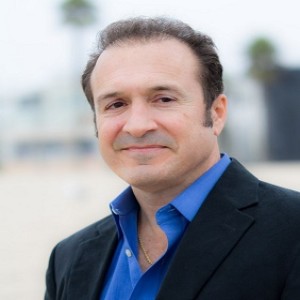
Thursday Sep 13, 2018
Darrell Gurney: Breaking Bad, Career And Hiring Habits!
Thursday Sep 13, 2018
Thursday Sep 13, 2018
Why is it that we put more thought into lunch choices than we do our career or hiring decisions?
Today we are going to discuss the top three bad habits that both candidates and companies do throughout the hiring process that kill their ability to make a smart decision.
Today's Quote:
“To change habits, we must study the habits of successful role models.” – Jack Canfield
Show Guest:
Darrell Gurney is a career expert, executive coach and authority in supporting people through successful transitions. He brings back the power of social connection by teaching professionals that you’re simply one face-to-face relationship away from your dream job life.
He is the author of the Amazon bestseller “Never Apply for a Job Again: Break the Rules, Cut the Line, Beat the Rest."
As founder of both CareerGuy.com and TheBackForty.com, Darrell’s motto for both career and life is, as Frank Sinatra sings, “the best is yet to come, and won’t it be fine!”
Episode highlights:
- The top 3 bad habits we need to stop right now!
- Why these habits are so detrimental
- Good habits to replace the bad
Hiring bad habits from both sides:
Darrell’s top 3:
- 1. Looking to see what jobs are available & Going through the front door by applying for open positions.
- Take charge of their career path vs be at the effect
- Get out of your box: the house, the computer screen, the phone, and get in front of people.
- 80% of all jobs are filled before they are ever advertised by the people in the know bringing in the people they know
- 2. Failing to develop relationships beyond the job search process.
- Never submerge in your job or your life. Get out, be making connections, be talking to people about your interests and passions
- 3. Not treating yourself like a business
- Realize that you have your own business, and you always have -- you simply lease out your employable assets
- A business owner is always concerned first and foremost about two measures: ROI (Return on Investment) and ROE (Return on Equity). You want to similarly always watch, manage and monitor your own Return on Individuality and Return on Effort.
Rick’s top 3:
- Winging it-
- company values -clueless
- Not clear on what the business needs
- Work that needs to be accomplished
- Listening!
- Interview Process
- Not clearly defined
- Following the pack -
- Accepting the Status quo
- Testing people before engaging
- Transactional relationship
- Not understanding the person across from you
- Focus on skills
- Protective of the culture
Why are these habits bad?
- How can you get where you are going when you don’t know where you are?
How do we fix these habits?
- Winging it- not clear on what the business needs
- Build preparation time into your schedule
- Define what the business needs (not your wants) and who you need to take you there
- Interview Process
- Structured, Organized, Timed & Purpose Driven
- Get to the Truth!
- Transactional relationship
- Heal the person’s wound with your opportunity
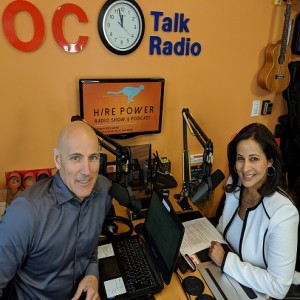
Friday Jul 13, 2018
Anita Kanti: Abolish the Resume!
Friday Jul 13, 2018
Friday Jul 13, 2018
A majority of the most talented people have terrible resumes. Why? Because they are busy making things happen!
Companies miss out on great people because they never make it past the resume screen. Automating the process and screening for buzzwords is just not an effective tool for finding the right people for your business. We are in the people business when we recruit. So, pick up the phone and judge based on your conversation and not the resume.
Today's Quote:
"Insanity is knowing that what you're doing is completely idiotic, but still, somehow, you just can't stop it."
- Elizabeth Wurtzel
Show highlights:
- Positive points of resumes
- Everything wrong with a resume
- Alternate solutions to resumes - solve the resume black hole
What resumes are good for:
- Contact information
- Career History
- The “white space”
What is wrong with the resume:
- Keyword dependent -wrong keywords or no keywords
- Designed to match with wish list of skills
- Too heavily relied upon in the interview process
- People lie
Alternate options to a resume:
- Video clips
- Video talent snapshot (resume) - Why is this a good idea?
- -discrimination bias?
- - how can a 1 minute video give you an accurate picture?
- AI
- Actual assessment - conversation
- Wound, Desire, Accomplishment
Effective use of a resume and how to identify great people:
- Just a tool, not a wall
- A guide to formulate skills based questions - Transferable skills
Anita Kanti is the Executive Talent Manager of Huawei Technologises. She is a global business partner and senior manager supporting executive leadership deliverables' for leadership talent acquisition needs for the US and China marketplace.
As both a motivational life coach and strategic talent manager, Anita Kanti offers progressive solutions to help her company and clients optimize their strengths and create a pathway of success. Anita is a proven expert in talent recruitment, both in leading corporations such as Broadcom Inc., and United Healthcare, as well as building a company of her own, Anita K Solutions. Anita K has combined her expertise in talent development and leadership with her training in motivational techniques to create a unique and effective life coaching philosophy.
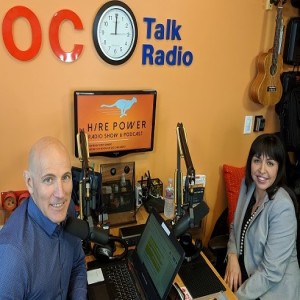
Friday Jun 15, 2018
Nicole Arvizu: Human Resources VS. Recruiting. Who Will Come Out Victorious
Friday Jun 15, 2018
Friday Jun 15, 2018
We are putting on the gloves in an epic showdown today. Answering the age-old question of Why we can't just get along.
3 rounds for the undisputed Podcast championship:
- Round 1: What Human Resources dislikes about Talent Acquisition
- Round 2: Recruiting issues with HR
- Round 3: Solutions to get the two working together
Round 1: Issues that HR has with Recruiting
- Fixing problems or adding to the problem
- Spray & Pray
- Transactional
- Low hanging fruit
- Clear expectations of what is acceptable
- Understanding our business
Round 2: Recruiting perception of HR
- HR doesn't really understand or care about hiring
- Relationship with Hiring manager(s)
- No understanding of the Job description
Failure to Communicate:
- Blame game
- Market conditions (low unemployment)
Round 3: Working effectively together
- Control
- Restructuring HR bonus structure (cost per hire)
- Separating responsibilities
- Trust
- Structure
Nicole Arvizu is the Chief Human Resources & Compliance Officer for MeriCal, Inc. She is a very progressive and disruptive HR leader! Nicole is a change Agent who joined Merical in January 2017 and has done an amazing job of transforming the organization to bring in HR as a business partner rather than an administrative arm.
She loves to geek out with her quest for scientific knowledge and is also a surfer!
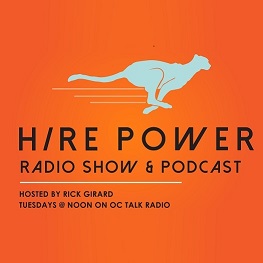
Wednesday Jun 13, 2018
Event Interview:Paul Pickle From Octane OC's Technology Innovation Forum
Wednesday Jun 13, 2018
Wednesday Jun 13, 2018
Paul Pickle, Former President & COO, of Microsemi & MC of Octane OC's 2018 Technology Innovation Forum. We discussed the future of Semiconductor and whats on the horizon.

Monday Jun 11, 2018
Event Interview: Ryan Permeh From Octane OC's Technology Innovation Forum
Monday Jun 11, 2018
Monday Jun 11, 2018
Ryan Permeh, Co-Founder & Chief Scientist of Cylance! I had the pleasure to sit down with Ryan for a quick interview at Octane OC's Technology Innovation Forum Event. He shared some great Insight on Leveraging the Cybersecurity hub in SoCal.
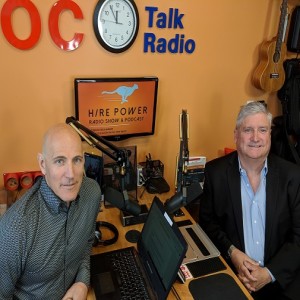
Thursday Jun 07, 2018
Thursday Jun 07, 2018
Picking the right recruiter partner is not easy. Today’s episode is all about the different options available and how to find a search firm who has your company’s best interest at heart. Start by establishing the following.
Show highlights:
- Defining & understanding your company - values, culture, & plan
- Expectations of your team, company goals, needs
- How to evaluate a search firm and chose the one that best fits with your organization
Begin with the root of where we should start. As a company, who are we?
- Company’s core values
- Culture
- Plan for success
Understanding your Company’s “Needs” and defining expectations:
- Needs vs. Wants - your company needs trump ego
- Speed vs. quality
- Recruiting mentality Driver vs. Order Taker
Determining the best type of search for your specific needs:
- Staffing
- Contingency
- Retained
- In House
How to pick the right recruiting partner:
- Process
- Cultural & Business understanding
- passion
Tom Chaparro is the Executive Vice President and General Manager of The Newport Group - Executive Search Consultants.
As EVP & GM, Tom is responsible for firm-wide management of day-to-day operations and quality control, as well as providing leadership and training to managers and staff.
Mr. Chaparro combines deep, hands-on expertise in a variety of verticals, with an uncanny business insight for the international marketplaces in which his business partners operate. With proven executive search experience, and an unmatched knowledge of the real estate development, construction and oil & gas industries
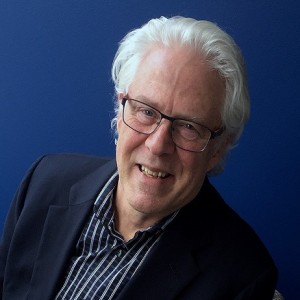
Thursday May 31, 2018
Thursday May 31, 2018
On Average 20% of your company provides 80% of your value. Which poses the following questions that we covered on today's show:
- How many A&B players would you need to produce 100% of the productivity generated now
- If everyone in the company were A&B players what would be the capacity?
- Solutions to transform and/or hire top performers
On Average how many people at a company are A players?
- 20% produce 80% of the work…
- Startup should be flipped
Can we transform people by just moving them to a different seat? How?
- Aligning passion & growth
Why is important to shift people to a different seat rather than letting them go?
- Shows commitment to people in company and doesn't downgrade the morale of the company
If everyone in the company were A&B players what would be the capacity?
- Increase ROI by 300-400% with the same people every time. Just moved people in the right position.
- Most people are in the wrong seat
How do we transform current under performers into A players?
- Job description process: be able to show what is really needed in each role
- What needs to be accomplished and when it needs to be done
- Growth, Attitude & Passion
- Clear statement about the most important contribution will the person make and how much $ does that turn into with an A-player.
- Prioritize responsibilities & percent of time doing each tasks.
- Where are they, what do they have as tools, & the biggest task (4-5 kinds of tasks) of everyday-functioning at the task level
- Type of communication- break down (telephone, data)
- Who I am matched with these areas- deliver core value energy
- Weave CVI and detail the How
Lynn Taylor is the President and CEO of Taylor Protocols, Inc. He is a business optimization expert in the areas of human capital, C-level performance, executive coaching and organization design. Lynn is a creator of the Core Values Index (CVI), the only assessment to identify the unchanging human characteristics that dictate future job performance and align these with the responsibilities of a given role for guaranteed success.
Lynn stakes his company and his reputation around his “right person, right job” mission. He has performed more than 200 successful turnaround projects over the past 20 years.
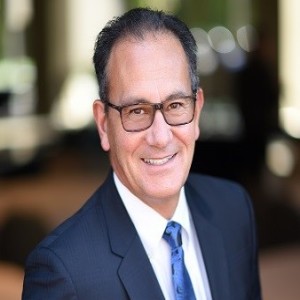
Thursday May 17, 2018
Richard Franzi:Unintended Consequences Of A Poor Hiring Process
Thursday May 17, 2018
Thursday May 17, 2018
Bad hires are the negative effect of a unstructured hiring practice and will manifest itself in the performance of your company. So how do you minimize the risk of bad hires? A hiring structure needs to be in place to drastically increase the chances of making a great hire.
Show Guest:
Rick Franzi is the Founder & CEO of Critical Mass for Business. He is the author of the best selling book “Killing Cats, Leads to Rats” -Mitigating the unintended consequences of Business Decisions.(Amazon.com)
Rick currently chairs CEO Peer Groups® throughout Los Angeles and Orange County, CA through his partnership with Renaissance Executive Forums. He is the host of Critical Mass Radio Show & Podcast here on OC Talk Radio.
He is a nationally recognized thought leader on the power of peer learning for CEOs and business executives. Rick's work has been featured in national media forums such as Forbes & Inc.com
Topics covered in “unintended consequences”:
- Symptoms
- Diagnosis: the disease is not Hiring with a process
- Secure Model for Hiring
- Prescription
What are the symptoms (issues)?
- Company’s hire for Skills
- Winging it
- Asking the wrong questions
- Down hiring
The diagnosis: disease is not having a hiring process. Why?
- Repels great talent (unstructured is unimpressive)
- Unstructured interview (only a 6% chance of making the correct hire)
- Bad hire will infect 30% of the people around that person - drop in performance
Prescription/solution - implementing the SECURE Model
- S stands for slow down the decision-making process.
- E stands for expand your knowledge.
- C stands for clarify the desired outcome.
- U stands for unify the team
- R stands for retain control of the process.
- E stands for ensure you stay outcome focused.
Check out the Blog on the Stride Search, Inc site for the supplementary “show recap” article with detailed takeaways/insights from the interview.
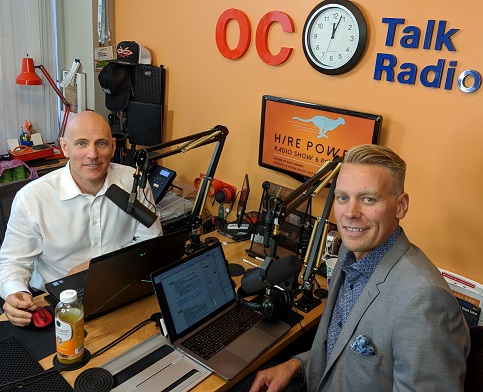
Thursday May 10, 2018
Thursday May 10, 2018
True transparency maximizes trust and enables a company to thrive! Vincit promotes proactive leadership and a bottom up leadership approach. The results: a rediculously successful business with no attrition and incredible engagement and productivity.
Episode highlights:
- True Transparency- what it looks like to a company that is thriving
- Proactive leadership
- How this structure attracts outstanding people!
Explain what transparency looks like in you company
- Publish Salaries openly- colleagues nominate for raises. Twice a year
- Satisfaction guarantee for new employees. Pay people to leave within first two months
- Eliminated middle management
- Company credit card
How does transparency Maximize Trust?
- Bottom to top approach to leadership - focus on listening and reacting. Leadership as a service- created a platform. LaaS
- Increase Management workload? - lowers load because you are not predicting situations to handle situations. Individualize the model. People end up managing themselves
Transfer into your hiring process?
- What do they do in hiring?
- Screening to eliminate the mediocrity? they test interviews in teamwork based situations.
- Look for collaboration, skills and cultural fit. Have to be able ask questions, “having dialog”
Results?
- Attrition
- Engagement
- Productivity
Ville Houttu is the Founder and CEO of Vincit California, Inc. Previously, he helped to take it public in Nasdaq First North marketplace. After the IPO, Ville moved to California to start Vincit’s local subsidiary. During the first year of operations he built a team of 20 developers in Irvine and acquired OC’s hottest digital branding agency, XTOPOLY. The team operates in Irvine and Palo Alto, where they help companies such as Logitech and Yamaha to develop their mobile apps and digital services.
Ville is passionate about creating lean working environments and scaling operations without creating policies. He is also one of the few Ironman triathletes who plays steel guitar on several albums on Spotify.
Check out the Blog on the Stride Search, Inc site for the supplementary “show recap” article with detailed takeaways/insights from the interview.
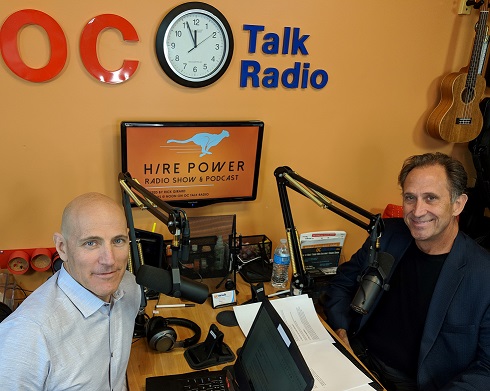
Friday May 04, 2018
Friday May 04, 2018
We all have unconcious bias. It is important to recognize and identify them, especially in the workplace. When we acknowledge these biases, then they can be eliminated in the interview process, creating smarter hires for your business.
Episode highlights:
- What Unconscious bias is
- How to acknowledge it
- Eliminate it from the hiring process
What is Unconscious Bias?
- Relative to gender, race, age
- We all judge but the key is not to pass judgement until…
- Unconscious (or implicit) biases are learned stereotypes that are automatic, unintentional, deeply ingrained, universal, and able to influence behavior
How do we recognize and identify our bias?
- EQ, Self Awareness
- Roots
The value of Bias in the workplace
- Diversity in thinking
- Leverage Enlightenment
How do we Eliminate Unconscious bias from the interview process?
- Understand the value around bias in the workplace
- Harvard Business Review:
- Seek to understand- “Organizational conversation”,
- Job descriptions- perception words, gendered words-balance:”build and create”
- Blind resume review- ignore the name
- Accomplishment focus
- Structure Interviews
- Value fit
- Diversity goals
Chris Steely is the Managing Director of GPS Business Group. He is a transformational business leader, author, trainer, and business coach, who has trained thousands of business leaders worldwide on how to refine and apply optimal capabilities to their business. Chris focuses on delivering business effectiveness services to clients across the globe. He’s co-authored two books, and has been featured as a business expert on countless international stages.
Check out the Blog on the Stride Search, Inc site for the supplementary “show recap” article with detailed takeaways/insights from the interview.
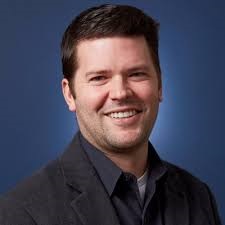
Thursday Apr 26, 2018
Thursday Apr 26, 2018
Insights on Proper Interview Communication and the ways to incorporate them effectively for the Hiring Process:
- What are the broken issues in the Interview communication
- Fix the crucial areas
- Utilize Solutions and Tools that are available to enhance communication and overall candidate experience
With all the technology & tools available, Why is this still a problem today?
- We try really hard to take out the human element from the process
- Lost art
- Transactional
Where the challenges lie
- Recruiter & Interviewee
- Recruiter & hiring manager
- Interviewee & hiring manager
Forms of Communication & Issues
- Video interviewing vs phone interviewing, Video cons: implicit bias
- Chatbots- engagement /screening tool
- Text messages
How do we make interview communications effective?
- Recruiter & Interviewee
- Recruiter & hiring manager
Tools
- Interview Data/Evidence
- Remember your Conversations
- Reduce misinterpretation and bias
- Remove redundant interview steps
- Other Tools:videos, Chatbots
- Technical tests
- Take home tests
Nick Livingston is CEO of Honeit Software. He has been scaling recruiting teams and companies in San Francisco and New York City for 15 years. Nick started his career as a technology headhunter in NYC. After a successful IPO at TubeMogul (now Adobe) while attending business school at UC Berkeley, he co-founded Honeit Software to rethink interview communication and simplify the hiring process. At MTV, Nick was the Recruiting Director responsible for digital media and interactive technology talent. Nick worked at HR Technology companies Taleo and NextSource. He received his MBA from Berkeley, with BS in Applied Mathematics.
Check out the Blog on the Stride Search, Inc site for the supplementary “show recap” article with detailed takeaways/insights from the interview.
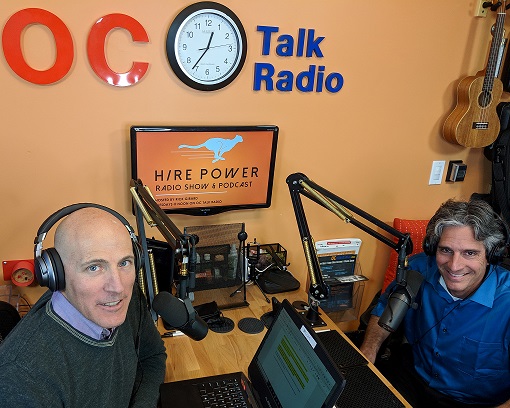
Thursday Apr 19, 2018
Todd Raphael:Hiring Practices That Are Driving Great People Away From Your Company!
Thursday Apr 19, 2018
Thursday Apr 19, 2018
Companies complain that they can’t find people yet they do a lot of alienating of potential hires through their actions. Identifying and fixing what drives people away in each stage of the interview process, looking at data of where the best hires are produced, and learning the trends in the Industry will increase the pool of better candidates for your business.
Episode highlights:
- What drives candidates away?
- How do we fix these issues
What drives people away?
- Job description- selfish, not engaging,
- First contact - too selling job focused
- Interview - prepared, structured, Format
- Follow up process
Hurdles in Applicant tracking systems/Interview process
- Tests
- Missing human connection
Job boards are getting less traction
- Evolution of video interviews & ai… matching
- Candidate experience- cannot do @ scale
- Automated process & gaming
Look at your data. Where are the best hires produced?
- Changing the mix of were you recruit. *do the opposite of what you are doing now!
- Job ads- alienating people….need to Engage people, *contact & follow up
- Blind resumes? *eliminate bias
- Messaging- party environment
- Getting past bias
What needs to be fixed?
- Job description
- First contact
- Interview
- Follow up process
Trends in the Industry
- What’s working & What’s not
Todd Raphael manages global publications and conferences for ERE Media, a global community of recruiters and others in the talent field. He has appeared on Sirius XM, VoiceAmerica.com, Wall Street Journal, Time, Forbes, and more.
Todd was named DevSkiller's 2016 "50 Most Game-Changing Influencers In Recruitment." Named Glassdoor's "2015 HR & Recruiting Thought Leaders" and HR Examiner's "Top 100 Influencers" list in employment/human resources and its top 25 Online Influencers.
He was listed on Mike Vangel of TMP's "60 Or So True Influencers In Social+Mobile Media and/or Recruitment."
Check out the Blog on the Stride Search, Inc site for the supplementary “show recap” article with detailed takeaways/insights from the interview.

Monday Apr 16, 2018
Monday Apr 16, 2018
Brenda Diedrichs, Chief Human Resource Officer and Hilda Gracia, Employee Relations Analyst of County of Orange
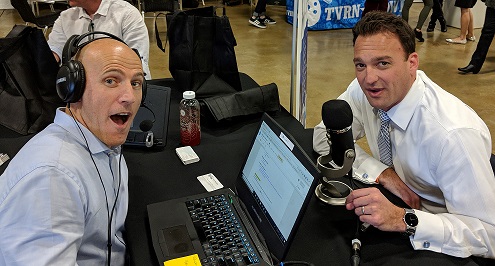
Monday Apr 16, 2018
Monday Apr 16, 2018
Ryan Logan, Certified Financial Planner & CEO of RAL Financial & Insurance Services
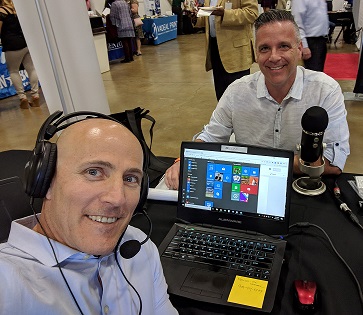
Thursday Apr 12, 2018
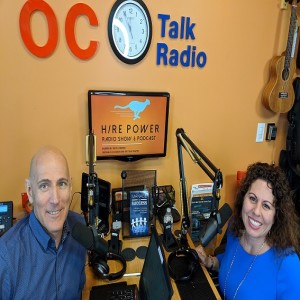
Thursday Apr 12, 2018
Leisa Reid: The 3 Keys To Transformation For Yourself And Your Business!
Thursday Apr 12, 2018
Thursday Apr 12, 2018
The 3 keys to transformation and how to apply them for success:
-Understanding of yourself (past)
-Awareness (present)
-Compelling vision (future)
Leisa Reid is a presenter with Productive Learning, a boutique personal growth company founded in 1992, and has trained thousands of people on the power of the mindset. After 20+ years of Management, Sales and Executive Leadership, Leisa dedicated her life to assisting others invest in their personal development. Why? Because she personally experienced the powerful results as a client of Productive Learning. She loved the company so much she joined them in the pursuit of living an extraordinary life.
Leisa is also the Author of the book “Manage to Success: A Guide to Cultivating Happy & Productive Employees” (Amazon.com)
Check out the Blog on the Stride Search, Inc site for the supplementary “show recap” article with detailed takeaways/insights from the interview.
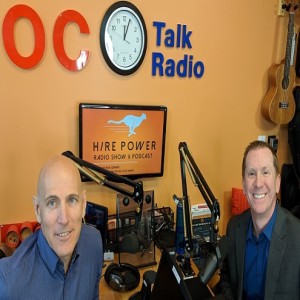
Thursday Apr 05, 2018
Thursday Apr 05, 2018
It is important to have a proactive talent strategy when planning and building your pipeline for your hiring process. Know when and how to tap into the pipeline. Developing a solid foundation, always recruiting by using your referral resources, and utilizing the tools and changes that companies can make promotes successful hiring searches.
Show Guest:
Ken Schmitt grew up in an entrepreneurial household with a father who was a Jack in the Box franchisee for 25 years, and a mother who left the accounting world to become a real estate agent. After spending 9 years working for a local boutique firm and one of the world's largest Executive Search firms, Heidrick & Struggles, he launched TurningPoint Executive Search in 2007. The past two Years, TurningPoint has been ranked one of the Top 150 Fastest Growing Private Companies in San Diego (SDBJ).
Ken is also the Founder and CEO of the Sales & Marketing Leadership Alliance (SMLA), and the annual Sales & Marketing Leader of the Year Awards (SMLYs). Ken is a thought leader in executive search and takes a high touch, concierge-style approach to placing first class talent. Which makes him the perfect guest for today’s topic! He is the Author of LinkedIn Hiring Secrets for Sales and Marketing Leaders. (Amazon.com)
Episode highlights:
- The importance of a proactive talent strategy
- Building your pipeline
- When & How to tap into the pipeline
The Why… Process is Reactive
- Starting at Ground zero (Avoid reinventing the wheel with each new search)
- Pre plan questions
- Organize- time, pace, resume/profile
Foundation - Developing The Plan
- Proactive mindset
- Always be recruiting (ABC….)
- Consistent message, not being transactional
- Look at recruiting as a revenue generating or sales process.
Building the pipeline. Always be Recruiting
- Employee referrals
- Industry leaders
- Top performers
Tools & Tweaks that companies can make to succeed
- Simple spreadsheet on excel
- Poor job of mining their own data.
- Someone owning the process.
- Employee referral program- on going notification
Check out the Blog on the Stride Search, Inc site for the supplementary “show recap” article with detailed takeaways/insights from the interview.
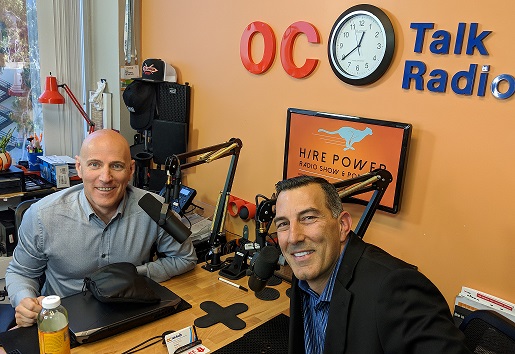
Friday Mar 30, 2018
Friday Mar 30, 2018
What is needed to attract investors, the importance of a team, and how to enagage the right people for your company. Develope a plan that will scale. Hire the needed technical, marketing and leadership expertise to raise capital and to build the business.
Episode Highlights:
- What is needed to attract an investor
- The importance of the team
- How to attract and scale your team
The Foundation - What really needs to be in place to attract seed round investment?
- Pick up 1-2 key customers with a working prototype
- Seed round: Have team, some customers, some revenue, working model. & need funds.
What is typically the right scenario for a TCA investor?
- TCA- a 20-40% small percentage are open for execution delivery role.
- *Understanding, awareness & belief
What is the biggest hurdles you see from entrepreneurs?
- Giving up equity is often the big issue.
- Angel members open to teaming up as a co-founder.
Building the Team - How do we attract the right person?
- Resources
- How to scale a team. Long term engagement, needs of the business.
- Operator, needs to give up “control”.
- Use advisors to vet talent, first reluctant to bring in the help.
Scale
- When to start?
- Evaluation & Planning
- Analogy of championship sports teams- key pieces of the puzzle but not all the right pieces at the right team.
Hicham Semaan is an experienced CEO, GM, senior executive, angel investor, senior, and board member to CEOs, management teams, private equity, startup companies. He is a respected leader with strong vision, value creation, turn around, and acquisition expertise, and has successfully grown and exited businesses. Hicham is considered an expert in the technology, education, and real estate industries and has been a featured speaker at several industry events.
He is the newly elected Tech Coast Angels-Orange County President and has received the “Excellence in Entrepreneurship Award” from the OCBJ and was recently named “New Investor of the Year” by Tech Coast Angels.
Check out the Blog on the Stride Search, Inc site for the supplementary “show recap” article with detailed takeaways/insights from the interview.
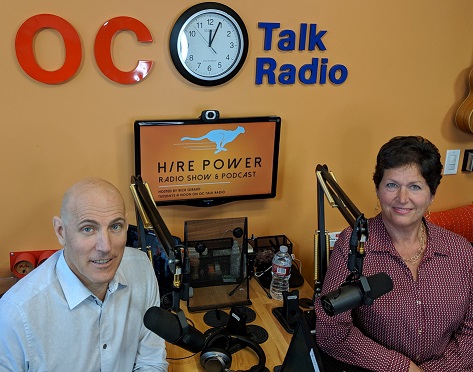
Thursday Mar 22, 2018
Thursday Mar 22, 2018
All interviewees should be treated with the same positive hiring experience, rather they be an active or passive job seeker. When you eliminate pre-judging and biases, build rapport, and follow up with your candidates, it creates positive results: brings the truth, leads to referrals, and produces positive reviews.
Episode highlights:
- How to treat all candidates
- Contact & Feedback
- Results
What is a Active job seeker vs. a Passive job seeker?
Why do we treat an active job seeker and a passive job seeker differently? What are companies missing?
- Eliminate: Pre judging & Bias
- The Resume… laziness by not calling. Leads to referrals if not a fit.
Why no feedback when I apply to an ad?
- Eliminate: Pre-judging & Bias
Act as if you are the candidate… Process for relationship building.
- Looking for value in the conversation.
- Follow through… set timeline, being considerate
Results
- The truth
- Referrals
- Positive feedback (Glassdoor)
Deborah Kantor is the President of Kantor Sales Associates. She has mentored and trained countless sales professionals in her four-decade-long sales career path. Deborah has been a student in every aspect of the sales cycle, from prospecting to close, and in the building of trusted partner relationships along the way. She has been a top performer in the staffing and real estate industries prior to her current coaching/training business. Beyond the sales skills necessary to open doors, Deborah is passionate about knowing how to present VALUE PROPOSITION, and communicate the WHY.
Check out the Blog on the Stride Search, Inc site for the supplementary “show recap” article with detailed takeaways/insights from the interview.
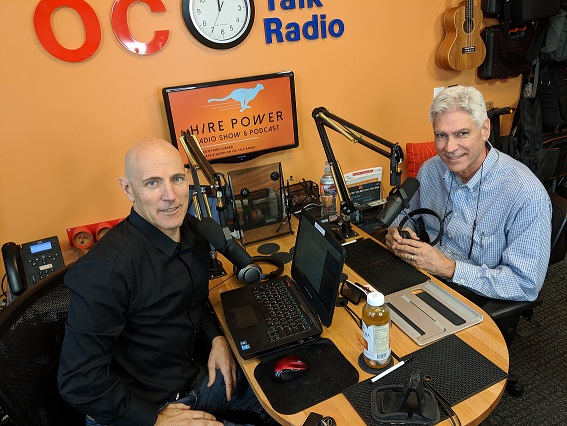
Monday Mar 19, 2018
Monday Mar 19, 2018
What should a proper Interview Structure should look like, how to Prepare and Plan the candidates for the Interview, and the right way to Execute the interview process. Having the right hiring structure will audition the interviewee for the company's cultural fit and determine those that may or may not be congruent to your organization's core values.
Episode highlights:
- What a proper Interview Structure should look like
- Preparing & Planning for the Interview
- How to Execute an outstanding interview process
The Foundation - How should an interview be Structured?
- Timed with a person leading the process
- 3-5 individuals, auditioning for cultural fit
Preparation
- Pre plan questions
- Organize- time, pace, resume/profile
What does an interview plan look like?
- Share the plan with the candidate before hand
Executing the Interview
- Alleviate the pressure … keep congruent with your environment
- Conversational
- Knock out questions
- Testing & digging
- Wrap up… set timeline
Checking References & Referrals
- Challenge the white space
Scott Kuethen is the CEO at Amtec, Inc., a professional recruiting organization specializing in placing professionals in Contract and Regular-Full-Time positions with companies ranging from small entrepreneurial start-ups to the fortune 100. He is an avid teacher, and writer in the areas of talent acquisition and selection, organizational planning, and business management. Scott’s life purpose is helping people find meaning in their work.
In his spare time, Scott enjoys photography, SCUBA diving, swimming, drone flying, and other activities that keep him young-minded.
Check out the Blog on the Stride Search, Inc site for the supplementary “show recap” article with detailed takeaways/insights from the interview.
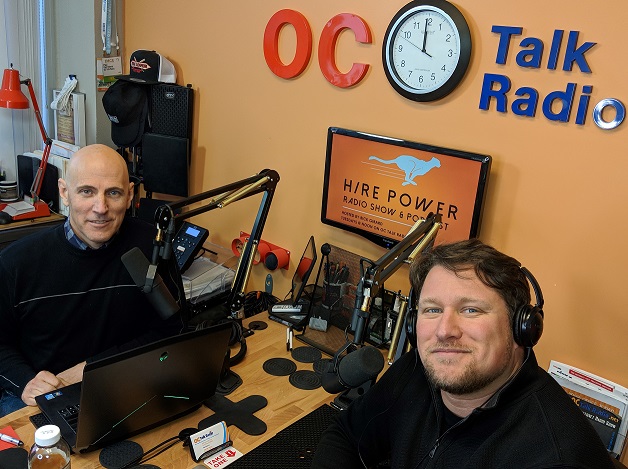
Thursday Mar 08, 2018
Thursday Mar 08, 2018
A 5x tech entrepreneur and his unique approach to hiring great people for his companies, using the 3 C’s: Culture, Capacity for Mastery, and Craft. Utilizing this interview methodology can take your company from good to great!
Episode highlights:
- What the 3 C’s are?
- Apply this methodology to your hiring for your company
A really unique approach to hiring, the 3 C’s
- Culture: Values- evolution of culture, Ethos (montrose), Traits
- Capacity - critical thinking & problem solving skills
- Craft- skills (not defined by)
How to apply this methodology
- Narrative arc interview
- White space interview
Jordan Ritter is an accomplished entrepreneur and technologist, having co-founded several companies including music company Napster, messaging security platform Cloudmark, labor-as-a-service platform CloudCrowd and most recently, personal digital search engine Atlas Informatics. He also served as the CTO of entertainment company Columbia Music Entertainment, as well as fan interaction platform Zivity. Jordan is also a regular open-source contributor, having authored free software commonly included in modern Linux distributions as well as Windows software licensed by Microsoft. Several of his projects have been featured in well-known publications and books, and incorporated into University-level curricula.
His works have won numerous nominations and awards spanning across Comdex, DEMO, SIIA, PC World, PC Magazine, and WIRED. Jordan speaks at technology conferences around the world on topics ranging across entrepreneurism, startup culture, AI, computer and messaging security, and the music industry.
Check out the Blog on the Stride Search, Inc site for the supplementary “show recap” article with detailed takeaways/insights from the interview.
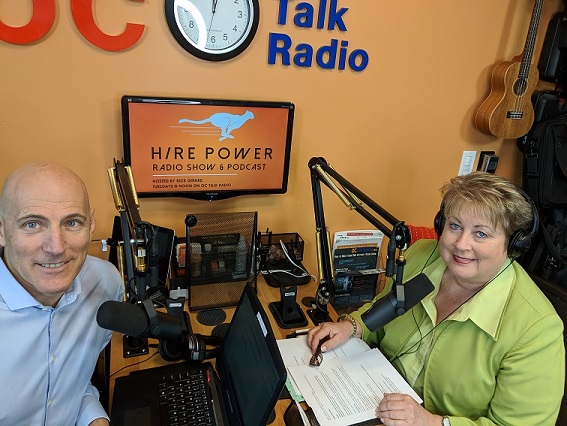
Thursday Mar 01, 2018
Jean Latu: Fractional Leadership As A Viable Option In Building Your Business!
Thursday Mar 01, 2018
Thursday Mar 01, 2018
The benefits of fractional help in your organization. Fractional work can bring important value while companies are experiencing change, such as a new leadership, merger and acquisition, or a resignation. Knowing when and how to engage a fractional person will provide the solutions needed for your company.
Episode highlights:
- What is Fractional - High end Temps!
- When & how to engage fractional help
Jean Latu is the Founder & CEO of Ingenio Solutions, a consulting firm focused on accounting and finance. She leads a talented team of experts in finance and accounting who work with clients to solve problems, create efficiencies, and improve the bottom line.
Jean has worked on projects for companies like CarrAmerica, Coldwell Banker, and Marriott as a consultant. She joined Jefferson Well as a Director of Finance Operations and led their finance and accounting practice. She grew the practice to 40 consultants from 5 and increased annual revenues to $10M from $1M in 3 years.
Check out the Blog on the Stride Search, Inc site for the supplementary “show recap” article with detailed takeaways/insights from the interview.
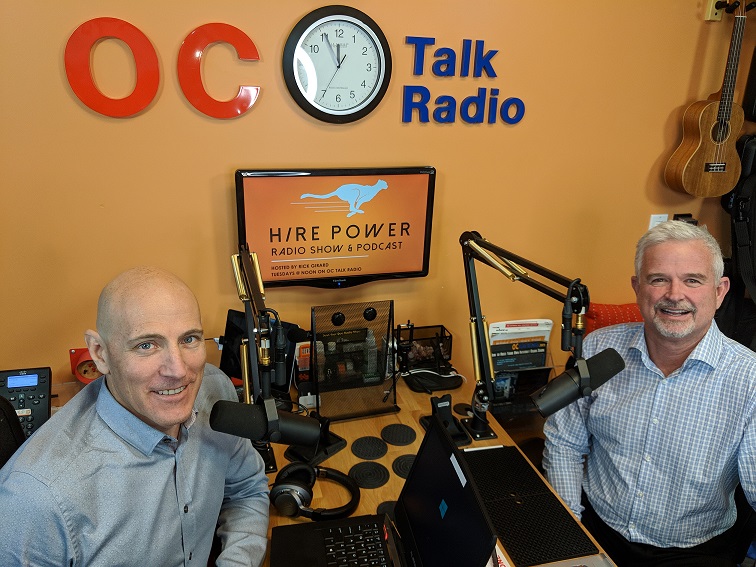
Thursday Feb 22, 2018
Thursday Feb 22, 2018
How to use analytics tools to first understand the role you are needing to fill. The importance of placing the right language to attract the right person to your job description. We share a format to make your company stand above the pack in impressing and engaging passive talent!
Robert Curtis is the Founder and CEO of Alpha Quantix, a leading provider of people analytics, metrics, performance solutions, and consulting and training. Alpha Quantix is a certified partner with Predictive Index. Robert actively engages business owners and senior management, both direct to management and jointly with industry-specific consultants, in a variety of capacities focused on: hiring the best people, developing employee engagement and delivering employee performance, and generally shaping organizational culture to help companies be the best they can be.
Check out the Blog on the Stride Search, Inc site for the supplementary “show recap” article with detailed takeaways/insights from the interview.
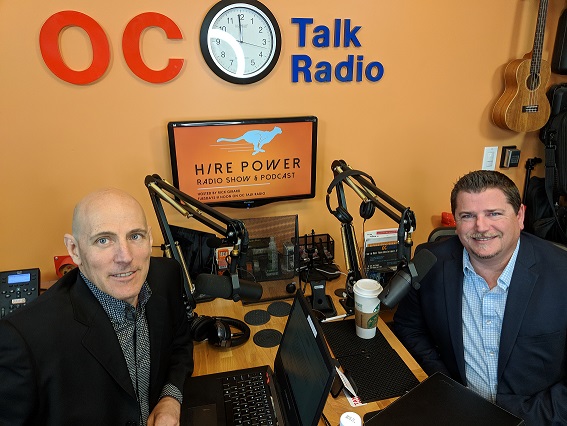
Thursday Feb 15, 2018
Thursday Feb 15, 2018
Gamification is leading by using the best ideas from games. Companies are using loyalty programs and behavioral economics to drive performance and engagement in their employees. Gamification in the workplace has been around for a long time but what's new is the introduction of tools, technologies, design disciplines and frameworks that are allowing us to do gamification in the workplace in a more scalable and repeatable way.
Brian Andersen is Founder and CEO of Telecomprehensive Solutions, a telecommunications & technology brokerage headquartered in Orange County. Brian is a keynote speaker and Chair of the Business & Workforce Development Committee for the Greater Irvine Chamber of Commerce. He leads Business Attraction & Retention efforts to unify our local Startup Ecosystem, connect business & provide education to empower Orange County's Workforce and other strategic Economic Development initiatives. In addition, He also serves on the Advisory Council for the Southern California Hospice Foundation.
Check out the Blog on the Stride Search, Inc site for the supplementary “show recap” article with detailed takeaways/insights from the interview.
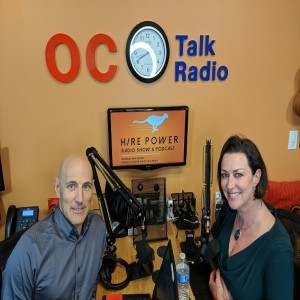
Thursday Feb 08, 2018
Thursday Feb 08, 2018
Ineffective communicators can shut down an audience in seconds! Especially with nervous, outdated or too technical presentation styles. This translates throughout your business and can definitely kill your ability to raise funding and hire top talent.
Stephanie Paul is the Founder and CEO of Stephanie Paul, Inc.. Stephanie has an expertise in Working with people who have a significant message that needs to be inspirationally transferred to a variety of audiences. Helping clients get away from "Selling" to Storytelling and turn facts and figures in to "Edutainment". All this with a professional, entertaining, funny and unique style of coaching. Her clients have FUN while being coached ultimately learning how to communicate on a deeper more connected and entertaining level. Bringing a new refreshing air to the culture of the traditional corporate "Bored Room".
From an international background as an actress and a comedienne, including producing and directing Stephanie Paul has combined her knowledge and experience with writing, acting, presentation and production for both on camera and the speakers stage, to bring the “Mastery of the Message” to her clients. Executive Producer and Co-Organizer of TEDx Mission Viejo 2016, Official TEDx Orange Coast Presentation & Connection Coach 2014, 2015, and Official TEDx - Kish (Iran) Presentation & Connection Coach April 2015/16.
Check out the Blog on the Stride Search, Inc site for the supplementary “show recap” article with detailed takeaways/insights from the interview.
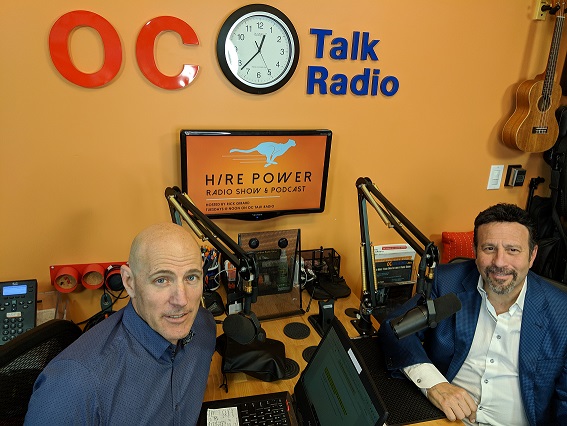
Friday Feb 02, 2018
Friday Feb 02, 2018
It is imperative to have comprehensive job descriptions! Robert Yonowitz and I discuss why this is important and how they are used in the workplace. Lawsuit prevention, ADA accommodation, Performance Reviews and disciplinary action are the cornerstones of why. Learn the components of an effective "defensive driving" job description and a description that attracts top talent!
Bob Yonowitz is a partner in the Irvine office of the national law firm of Fisher Phillips, one of the oldest and largest firms in the country practicing exclusively in labor and employment law representing management. Prior to practicing law, he also worked for the United States Senate Judiciary Committee Subcommittee on Courts. Yonowitz has proven expertise in many aspects of labor and employment law including litigating harassment, discrimination, retaliation, wrongful termination and wage hour class action claims, drafting key executive employment agreements and incentive compensation plans. Robert developed and is the co-chair of the firm’s nation-wide Unfair Competition and Trade Secrets Practice Group and has published numerous chapters, articles and lectures on the benefits of arbitration, drafting employee agreements, and prevention of employee theft of trade secrets.
He is a member of the California Bar, and the Labor and Employment Law Section of the American Bar Association.
Check out the Blog on the Stride Search, Inc site for the supplementary “show recap” article with detailed takeaways/insights from the interview.
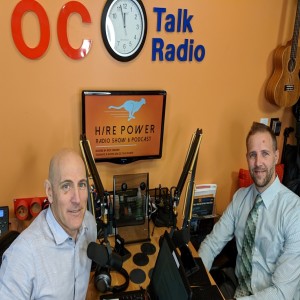
Thursday Jan 25, 2018
Thursday Jan 25, 2018
Emotional Intelligence, or EI, describes an ability or capacity to perceive, assess, and manage the emotions of one's self, and of others. Our EQ, or Emotional Quotient, is how one measures Emotional Intelligence. EQ is the Motivation, Empathy, Self Awareness, Self Regulation, and Social Skills. Emotions have the potential to get in the way of our most important business and personal relationships. But understanding the importance of EQ and having an in-depth process in place to evaluate each component, will uncover the truth and reveal any red flags of your candidates, preventing a hiring mistake for your company.
Rodney Burris is the President, COO and Co-Founder of Care Partners at Home. Founded in July 20, 2016, Care Partners At Home and its parent company, Post-Acute Care Partners Inc., was a career-long vision of Rodney's, a healthcare leader looking to turn his personal stories of caregiving and love into a completely different approach. His professional philosophy focuses on compassion and love, yet is built on a foundation of skilled associates with true expertise, delivering exceptional care.
Over the past 15 years, Rodney has had the opportunity to serve as a leader in Regional, Executive and Board Member roles across a spectrum of Healthcare organizations. These ventures have spanned from large corporate structures to small start-up companies. His intensity, drive and passion to care for others is a derivative from playing the role of “patient” many times throughout life. These events have inspired Rodney to build high performance teams that desire to broaden their positive impact through creation and innovation.
Check out the Blog on the Stride Search, Inc site for the supplementary “show recap” article with detailed takeaways/insights from the interview.
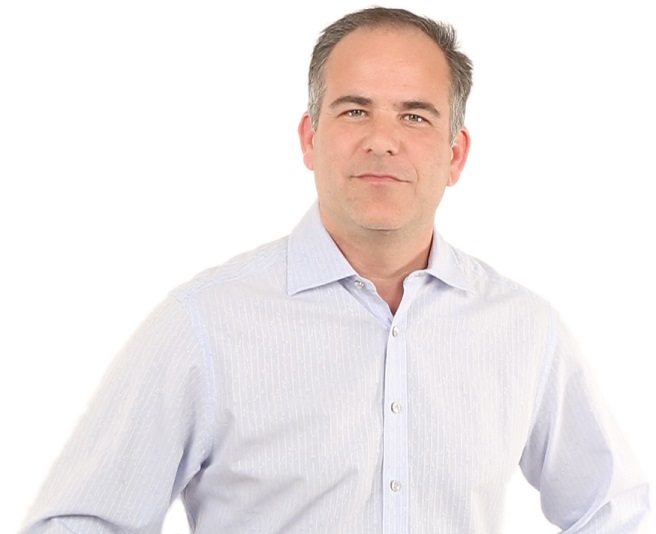
Thursday Jan 18, 2018
Thursday Jan 18, 2018
How do you REALLY discover if the person you are trying to hire is competent? Great incites shared by today's guest to avoid this major hiring mistakes that those before you have made. Besides having a Hiring Plan in place, providing in-depth evalution of your candidates, and implementing the right questions, will help hire the right people for your company.
Craig Cooke brings more than 20 years of interactive, marketing and management experience to Rhythm. As CEO, Craig drives the direction of the company through his vision, strategic planning and execution. He is actively involved in marketing initiatives, research and development, business development, vendor selection and strategic partner development. He also participates in hiring and producing high-quality solutions that deliver true value to clients. Craig takes a consultative approach to problem solving with clients. Essentially, he believes in helping people, delivering quality, demanding excellence and being accountable.
Craig’s leadership has driven Rhythm to be recognized as a fastest growing private company for five years in a row by Inc 5000, Orange County Business Journal, as well as a “Top Places to Work” in Orange County by OC Register and Orange County Business Journal.
Check out the Blog on the Stride Search, Inc site for the supplementary “show recap” article with detailed takeaways/insights from the interview.
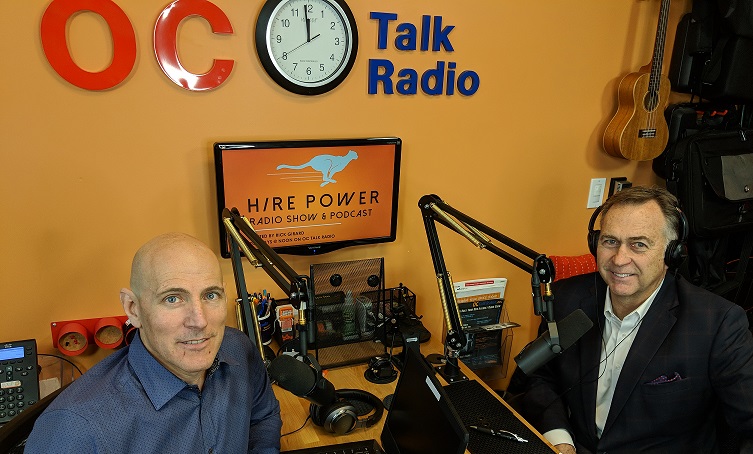
Friday Jan 12, 2018
Friday Jan 12, 2018
It is pertinent for companies to manage properly the rate of their spending through the varies stages of the business life cycle. Each level of growth, development/seed, startup, growth, expansion, and maturity has its monetary and talent challenges. But incorporating specific plan of expectations at each stage, hiring and delegating experts, and monitoring the burn rate accurately will encourage growth and success of your business without breaking the bank.
Karl Hardesty is the CEO and Founder of Hardesty LLC, a national executive services firm providing both executive search services and on-demand executives to companies. The Hardesty firm has built their reputation in the CFO space based upon their rapid deployment of experienced financial management resources through interim and project based engagements. Hardesty also specialized in other C-Suite rolls including CEO, COO, CIO and VP of HR.
Hardesty has grown rapidly since its inception in 2011, making Orange County’s Fastest Growing Company list for 2014 and 2015. The firm and it’s affiliates currently have offices in 10 major markets in the US.
Check out the Blog on the Stride Search, Inc site for the supplementary “show recap” article with detailed takeaways/insights from the interview.
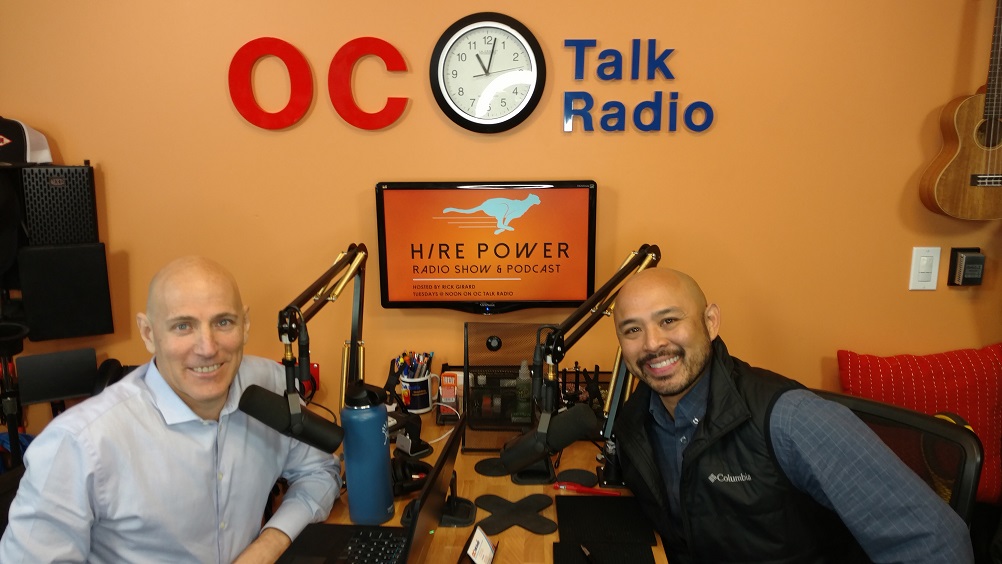
Thursday Jan 04, 2018
Paul David: Start Caring About Your People! Watch Your Business Thrive!
Thursday Jan 04, 2018
Thursday Jan 04, 2018
To build an outstanding Company, you need to start caring about your people. That is to listen, understand them and achieve mutual loyalty. Caring about your employees can be incorporated through Leadership, Investing time to get know the person at the Interview Process, having an Interview Structure with Behavioral Questions, and focusing on Engagement and Growth. When you really appreciate your employees, it transfers to your customers and the business!
Paul David is the founder and CEO of Identified Talent Solutions, an Irvine, California-based recruitment and human resource consulting firm. Paul has been featured in numerous business publications, and his firm was named one of the "Fastest Growing Private Companies” by the Orange County Business Journal and listed on the “Inc. 500” by Inc. Magazine as part of its annual list of “America’s Fastest Growing Private Companies.”
Check out the Blog on the Stride Search, Inc site for the supplementary “show recap” article with detailed takeaways/insights from the interview.
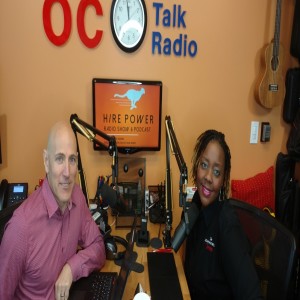
Thursday Dec 21, 2017
Thursday Dec 21, 2017
There are two types of engagement, before the hire and while employed. Recruiting is not about you or your needs anymore. The proper engagement in the recruiting process is focusing on work life balance, social consciousness, benefits… opportunity for growth.
To retain talent once you have a person as an employee, you need to build the right cutlure by providing growth, communication, and having a Purpose, Intention, and Execution process in place.
Deena Brown is an Executive Director and certified speaker, coach, and trainer with The John Maxwell Team. She is an international best-selling author, The A-Z Guide to Mindful Leadership (Amazon.com) and has been featured on ABC, NBC, CBS, and Fox as a highly sought keynote speaker, business and leadership growth expert.
She is affectionately known as The Millennial Whisperer. Her clients have identified her as The Catalyst because she makes Shift Happen. She is the founder of the Millennial Leadership Institute that provides leadership development and lifestyle coaching to Millennials. Her signature C3LeadershipTM Program helps professionals have more Clarity, Confidence, and Consistency by teaching how to Communicate with Influence, Connect Authentically, and Collaborate Strategically.
Dr. Brown’s expertise helps organizations and individuals build a clear path to significance that bridges their philosophy, vision, mission, and goals to their optimal organizational identity.
Check out Blog A and Blog B on the Stride Search, Inc site for the supplementary “show recap” article with detailed takeaways/insights from the interview.
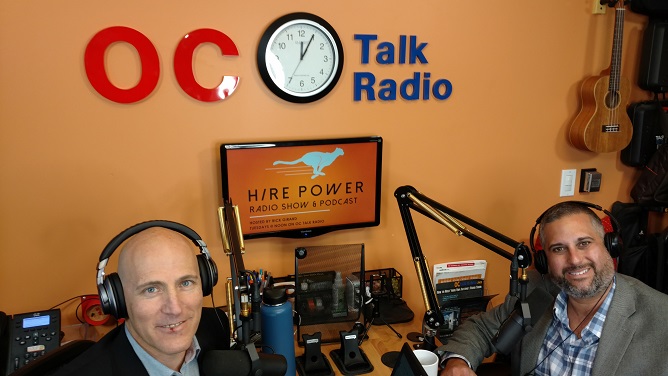
Wednesday Dec 13, 2017
Wednesday Dec 13, 2017
It is important to have a strong technical leader for the success of your company. Entrepreneurs often make the mistake of bringing in the wrong type of person. Today we discussed best options for technical leader for your business.How do you get a strong leader to join your company? You need to know what a strong technical leader looks like and have a plan of action to make sure the right ingredients are present in a person to ensure their success.
Scott Krawitz is the Founder and CEO of People Driven Solutions (PDSI), a technology services firm specializing in fractional technology leadership, curated technology solutions, along with talent acquisition and retention. For over 20+ years, Scott has consulted executives and lead teams through all project phases from strategic planning, analysis, design, and development to implementation, iterative improvement and ongoing support. Industries served include: Financial Services, Healthcare, Software, Retail, Business Services, Legal, and Education Technology.
In addition, Scott passionately serves on the Technology Advisory Board of the National Foundation for Autism Research supporting a software quality assurance training program. His greatest satisfaction is creating a win-win situation orchestrating the hiring of graduates.
Check out the Blog on the Stride Search, Inc site for the supplementary “show recap” article with detailed takeaways/insights from the interview.
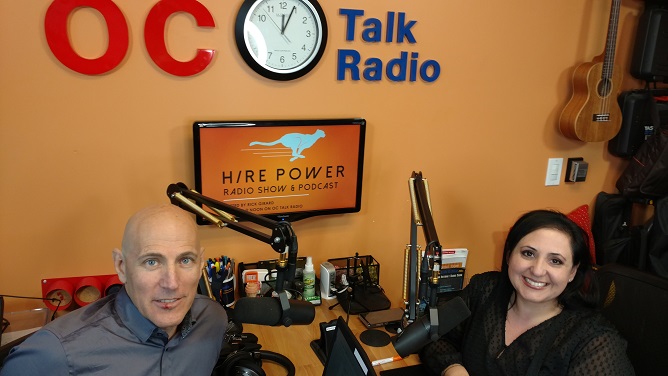
Thursday Dec 07, 2017
Thursday Dec 07, 2017
As of January an employer can no longer ask a person's salary history. They also can not ask about any form of compenstion and benefits. This includes 3rd party recruiters and reference checks. Companies with 5 or more employees will also be required to Ban the Box on job applications. This means that the criminal history section will be omitted and can no longer be asked during the interview process.
With over 15 years in the “People Business”, Karen Bajanov is a seasoned Human Resource Compliance Specialist. After graduating from Cal State Los Angeles with a degree in Health and Human Services, Karen began her career as Director of HR for a major corporation that had over 500 employees.
While in the corporate environment, Karen realized that small and medium businesses had a real need for human resource solutions in order to grow and protect their business. After 13 years as the Director of Human Resources with a corporate firm, she began KEB Business Consultants. KEB Business Consultants now serves small and medium businesses, across a variety of industries, with all of their human resource, talent management and benefits administration requirements.
Check out the Blog on the Stride Search, Inc site for the supplementary “show recap” article with detailed takeaways/insights from the interview.
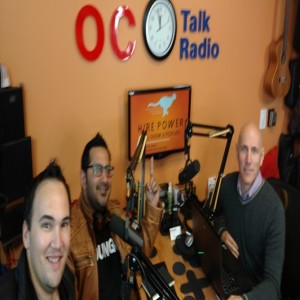
Thursday Nov 30, 2017
Thursday Nov 30, 2017
If you can find a purpose for your company above and beyond just making money… You will ignite passion in your Influencers & Advocates.
YOUNGRY™ - an united community of entrepreneurs that hustle, profit, expand, and inspire with original content, events, and e-commerce.
Ash Kumra, CEO and Co-Founder is an award winning entrepreneur, author, speaker and syndicated radio show host. He has been recognized by the White House and President Obama as one of the top 100 entrepreneurs in the country under 30.
He is the author of book series "Confessions from an Entrepreneur" (Volume 1) & (Volume 2) (Amazon.com), spoken to over 10,000 people on entrepreneurship, over 100 articles and conducted over 1000 interviews with business mavens, entrepreneurs and celebrities.
John Reed is the COO of Youngry.
Check out the Blog on the Stride Search, Inc site for the supplementary “show recap” article with detailed takeaways/insights from the interview.
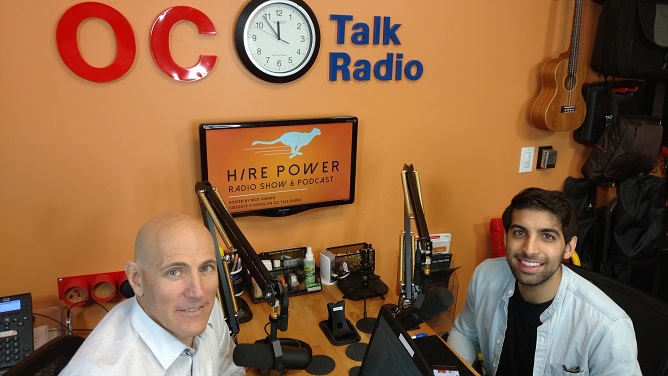
Wednesday Nov 22, 2017
Dalip Jaggi: Investing In Your People Above And Beyond The Standard!
Wednesday Nov 22, 2017
Wednesday Nov 22, 2017
We learned about a company that was truly built by: Valuing people more than anything else. Invested in people first. Foster education first, allowing room for growth. Doesn't cut corners and gives benefits freely. He caters to the company and is big on creating value for company and clients.
Dalip Jaggi has been recognized as a young entrepreneur, an active soul who is always looking to do more and do better. He is the founder of the respectable brand and digital agency, Devise Interactive. Inventor, he co-founded the world’s first smart shower device, EvaDrop Smart Shower and an interactive kiosk for brick-and-mortar shops, Fraxtion. He co-founded Forge54, a non-profit, that hosts a 54-hour hackathon weekend to provide a marketing makeover to one non-profit every year. Dalip enjoys spending time with his family and friends, playing chess or even the saxophone, and snowboarding.
Check out the Blog on the Stride Search, Inc site for the supplementary “show recap” article with detailed takeaways/insights from the interview.
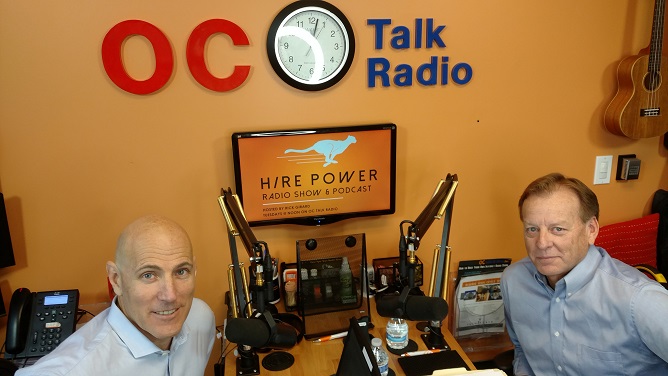
Thursday Nov 16, 2017
Rod Swartwood: Human Capital Return On Investment! HCROI
Thursday Nov 16, 2017
Thursday Nov 16, 2017
Most companies look to HR for Compliance and today we take a look at how Human Resources can positively affect profit rather than holding down costs.
Rod Swartwood is the Founder and President of HR Prime, a full-service HR consultancy specializing in the strategic and tactical creation of best-in-class talent management practices and world-beating teams. From HRIS roles with government agencies in the early days of LAN based business computing through his strategic HR leadership roles at startups and Fortune 300 companies. His 26 years of practical HR leadership in a wide variety of verticals, coupled with his degrees in organizational psychology and business give him the unique opportunity to guide both young organizations and established entities to greater productivity and profits.
Check out the Blog on the Stride Search, Inc site for the supplementary “show recap” article with detailed takeaways/insights from the interview.
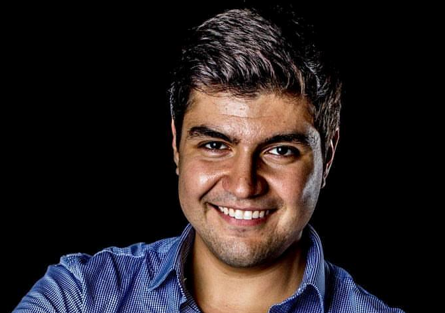
Wednesday Nov 01, 2017
Peter Polydor: The Importance Of A Strong Team When Shopping To Investors!
Wednesday Nov 01, 2017
Wednesday Nov 01, 2017
One of the most critical elements to being funded is the team who are leading the charge. Know your weaknesses and have a plan to fill those gaps! Be honest in your approach and realistic in how your company will grow.
Points covered:
- - Importance of a strong team
- - Having a Plan & When to Pivot
- - Strategy for how and when to engage a recruiter
- - Position your team to be attractive to investors
Peter Polydor is the CEO and Founder of ERGO Capital and the startup accelerator Ergo Accel. In 2014, he founded the Eureka Building, a three-acre startup and tech community based in Irvine, California, designed to foster innovation and house entrepreneurs. The site is home to over 30 companies ranging from startup to a large public company. Peter sits on the Boards as well as Advisory Boards of a number of portfolio companies and startups. Further to his work at ERGO, Peter is a Professor of Practice at the University of Wales, is a Charter Member of the Canadian C100, recipient of the Greek 40 Under 40 award and the Power 30 Under 30 award. He received his BA from Occidental College and his MBA from the University of Oxford, Said Business School.
Check out the Blog on the Stride Search, Inc site for the supplementary “show recap” article with detailed takeaways/insights from the interview.
